afterLoad (455.67KB) (6.05ms)
afterInitialise (1.27MB) (57.1ms)
afterRoute (856.63KB) (33.93ms)
beforeRenderComponent com_tags (20.38KB) (341μs)
afterRenderComponent com_tags (3.97MB) (543ms)
afterDispatch (25.18KB) (4.06ms)
beforeRenderRawModule mod_articles_category (READ MORE...) (372.12KB) (20.11ms)
Before Access::preloadComponents (all components) (56.7KB) (1.7ms)
After Access::preloadComponents (all components) (103.05KB) (2.83ms)
Before Access::getAssetRules (id:8 name:com_content) (840B) (30μs)
After Access::getAssetRules (id:8 name:com_content) (7.05KB) (54μs)
afterRenderRawModule mod_articles_category (READ MORE...) (5.08KB) (202ms)
beforeRenderRawModule mod_tags_popular (Search) (4.81KB) (28μs)
afterRenderRawModule mod_tags_popular (Search) (5.93KB) (98.72ms)
beforeRenderRawModule mod_custom (Remember to download Heart Healthy Seniors) (816B) (38μs)
afterRenderRawModule mod_custom (Remember to download Heart Healthy Seniors) (4.86KB) (295μs)
beforeRenderRawModule mod_custom (Get additionel and more detailed knowledge ) (752B) (16μs)
afterRenderRawModule mod_custom (Get additionel and more detailed knowledge ) (1.67KB) (29μs)
beforeRenderRawModule mod_custom (BOOST YOUR IMMUNE DEFENSE) (608B) (11μs)
afterRenderRawModule mod_custom (BOOST YOUR IMMUNE DEFENSE) (928B) (23μs)
beforeRenderRawModule mod_custom (Are you taking supplements) (736B) (9μs)
afterRenderRawModule mod_custom (Are you taking supplements) (1.03KB) (20μs)
beforeRenderRawModule mod_custom (Antiaging) (720B) (8μs)
afterRenderRawModule mod_custom (Antiaging) (1.02KB) (19μs)
beforeRenderRawModule mod_custom (Exercise) (720B) (9μs)
afterRenderRawModule mod_custom (Exercise) (1.02KB) (18μs)
beforeRenderRawModule mod_custom (Check this before you buy a Q10 product) (752B) (9μs)
afterRenderRawModule mod_custom (Check this before you buy a Q10 product) (944B) (34μs)
beforeRenderRawModule mod_custom (Chronic fatigue tied Alan to his bed but Q10 capsules saved him:) (245.53KB) (5.31ms)
afterRenderRawModule mod_custom (Chronic fatigue tied Alan to his bed but Q10 capsules saved him:) (960B) (54μs)
beforeRenderModule mod_custom (Chronic fatigue tied Alan to his bed but Q10 capsules saved him:) (768B) (5μs)
afterRenderModule mod_custom (Chronic fatigue tied Alan to his bed but Q10 capsules saved him:) (1.3KB) (68μs)
beforeRenderRawModule mod_custom (Cholesterol-lowering without side effects:) (368B) (13μs)
afterRenderRawModule mod_custom (Cholesterol-lowering without side effects:) (2.19KB) (25μs)
beforeRenderModule mod_custom (Cholesterol-lowering without side effects:) (752B) (2μs)
afterRenderModule mod_custom (Cholesterol-lowering without side effects:) (1.28KB) (32μs)
beforeRenderModule mod_articles_category (READ MORE...) (21.32KB) (390μs)
afterRenderModule mod_articles_category (READ MORE...) (1.25KB) (46μs)
beforeRenderModule mod_tags_popular (Search) (5.17KB) (14μs)
afterRenderModule mod_tags_popular (Search) (1.27KB) (3.04ms)
beforeRenderModule mod_custom (Remember to download Heart Healthy Seniors) (1.17KB) (32μs)
afterRenderModule mod_custom (Remember to download Heart Healthy Seniors) (1.3KB) (56μs)
beforeRenderModule mod_custom (Get additionel and more detailed knowledge ) (368B) (13μs)
afterRenderModule mod_custom (Get additionel and more detailed knowledge ) (1.3KB) (27μs)
beforeRenderModule mod_custom (BOOST YOUR IMMUNE DEFENSE) (224B) (10μs)
afterRenderModule mod_custom (BOOST YOUR IMMUNE DEFENSE) (1.28KB) (23μs)
beforeRenderModule mod_custom (Are you taking supplements) (352B) (9μs)
afterRenderModule mod_custom (Are you taking supplements) (1.28KB) (22μs)
beforeRenderModule mod_custom (Antiaging) (336B) (9μs)
afterRenderModule mod_custom (Antiaging) (1.27KB) (22μs)
beforeRenderModule mod_custom (Exercise) (336B) (10μs)
afterRenderModule mod_custom (Exercise) (1.25KB) (21μs)
beforeRenderModule mod_custom (Check this before you buy a Q10 product) (352B) (9μs)
afterRenderModule mod_custom (Check this before you buy a Q10 product) (1.28KB) (21μs)
beforeRenderRawModule mod_menu (Main menu-US) (20.94KB) (572μs)
afterRenderRawModule mod_menu (Main menu-US) (152.66KB) (5.09ms)
beforeRenderModule mod_menu (Main menu-US) (720B) (6μs)
afterRenderModule mod_menu (Main menu-US) (4.36KB) (78μs)
beforeRenderRawModule mod_languages (Sprogskift) (3.44KB) (18μs)
afterRenderRawModule mod_languages (Sprogskift) (26.87KB) (3.3ms)
beforeRenderModule mod_languages (Sprogskift) (720B) (8μs)
afterRenderModule mod_languages (Sprogskift) (5.31KB) (26μs)
beforeRenderRawModule mod_finder () (6.34KB) (14μs)
afterRenderRawModule mod_finder () (214.16KB) (5.39ms)
beforeRenderModule mod_finder () (704B) (7μs)
afterRenderModule mod_finder () (5.79KB) (42μs)
beforeRenderRawModule mod_custom () (6.62KB) (178μs)
afterRenderRawModule mod_custom () (23.1KB) (2.9ms)
beforeRenderModule mod_custom () (704B) (9μs)
afterRenderModule mod_custom () (1.23KB) (163μs)
beforeRenderRawModule mod_menu (Main menu-US) (5.07KB) (142μs)
afterRenderRawModule mod_menu (Main menu-US) (5.8KB) (715μs)
beforeRenderModule mod_menu (Main menu-US) (720B) (4μs)
afterRenderModule mod_menu (Main menu-US) (1.25KB) (496μs)
beforeRenderRawModule mod_languages (Sprogskift Mobil) (912B) (28μs)
afterRenderRawModule mod_languages (Sprogskift Mobil) (3.89KB) (2.62ms)
beforeRenderModule mod_languages (Sprogskift Mobil) (720B) (9μs)
afterRenderModule mod_languages (Sprogskift Mobil) (1.27KB) (47μs)
beforeRenderRawModule mod_finder () (2.3KB) (16μs)
afterRenderRawModule mod_finder () (6.29KB) (2.38ms)
beforeRenderModule mod_finder () (704B) (6μs)
afterRenderModule mod_finder () (1.23KB) (58μs)
beforeRenderRawModule mod_custom () (8.66KB) (200μs)
afterRenderRawModule mod_custom () (904B) (175μs)
beforeRenderModule mod_custom () (704B) (2μs)
afterRenderModule mod_custom () (2.43KB) (1.02ms)
beforeRenderRawModule mod_custom () (688B) (157μs)
afterRenderRawModule mod_custom () (896B) (173μs)
beforeRenderModule mod_custom () (704B) (3μs)
afterRenderModule mod_custom () (2.71KB) (25μs)
afterRender (708.21KB) (17.9ms)
| 1 x afterRenderComponent com_tags (3.97MB) (52.99%) | 543.19ms |
| 1 x afterRenderRawModule mod_articles_category (READ MORE...) (5.08KB) (19.72%) | 202.12ms |
| 1 x afterRenderRawModule mod_tags_popular (Search) (5.93KB) (9.63%) | 98.72ms |
| 1 x afterInitialise (1.27MB) (5.57%) | 57.10ms |
| 1 x afterRoute (856.63KB) (3.31%) | 33.93ms |
| 1 x beforeRenderRawModule mod_articles_category (READ MORE...) (372.12KB) (1.96%) | 20.11ms |
| 1 x afterRender (708.21KB) (1.75%) | 17.90ms |
| 1 x afterLoad (455.67KB) (0.59%) | 6.05ms |
| 1 x afterRenderRawModule mod_finder () (214.16KB) (0.53%) | 5.39ms |
| 1 x beforeRenderRawModule mod_custom (Chronic fatigue tied Alan to his bed but Q10 capsules saved him:) (245.53KB) (0.52%) | 5.31ms |
| 1 x afterRenderRawModule mod_menu (Main menu-US) (152.66KB) (0.5%) | 5.09ms |
| 1 x afterDispatch (25.18KB) (0.4%) | 4.06ms |
| 1 x afterRenderRawModule mod_languages (Sprogskift) (26.87KB) (0.32%) | 3.30ms |
| 1 x afterRenderModule mod_tags_popular (Search) (1.27KB) (0.3%) | 3.04ms |
| 1 x afterRenderRawModule mod_custom () (23.1KB) (0.28%) | 2.90ms |
| 1 x After Access::preloadComponents (all components) (103.05KB) (0.28%) | 2.83ms |
| 1 x afterRenderRawModule mod_languages (Sprogskift Mobil) (3.89KB) (0.26%) | 2.62ms |
| 1 x afterRenderRawModule mod_finder () (6.29KB) (0.23%) | 2.38ms |
| 1 x Before Access::preloadComponents (all components) (56.7KB) (0.17%) | 1.70ms |
| 1 x afterRenderModule mod_custom () (2.43KB) (0.1%) | 1.02ms |
| 1 x afterRenderRawModule mod_menu (Main menu-US) (5.8KB) (0.07%) | 715μs |
| 1 x beforeRenderRawModule mod_menu (Main menu-US) (20.94KB) (0.06%) | 572μs |
| 1 x afterRenderModule mod_menu (Main menu-US) (1.25KB) (0.05%) | 496μs |
| 1 x beforeRenderModule mod_articles_category (READ MORE...) (21.32KB) (0.04%) | 390μs |
| 1 x beforeRenderComponent com_tags (20.38KB) (0.03%) | 341μs |
| 1 x afterRenderRawModule mod_custom (Remember to download Heart Healthy Seniors) (4.86KB) (0.03%) | 295μs |
| 1 x beforeRenderRawModule mod_custom () (8.66KB) (0.02%) | 200μs |
| 1 x beforeRenderRawModule mod_custom () (6.62KB) (0.02%) | 178μs |
| 1 x afterRenderRawModule mod_custom () (904B) (0.02%) | 175μs |
| 1 x afterRenderRawModule mod_custom () (896B) (0.02%) | 173μs |
| 1 x afterRenderModule mod_custom () (1.23KB) (0.02%) | 163μs |
| 1 x beforeRenderRawModule mod_custom () (688B) (0.02%) | 157μs |
| 1 x beforeRenderRawModule mod_menu (Main menu-US) (5.07KB) (0.01%) | 142μs |
| 1 x afterRenderModule mod_menu (Main menu-US) (4.36KB) (0.01%) | 78μs |
| 1 x afterRenderModule mod_custom (Chronic fatigue tied Alan to his bed but Q10 capsules saved him:) (1.3KB) (0.01%) | 68μs |
| 1 x afterRenderModule mod_finder () (1.23KB) (0.01%) | 58μs |
| 1 x afterRenderModule mod_custom (Remember to download Heart Healthy Seniors) (1.3KB) (0.01%) | 56μs |
| 1 x After Access::getAssetRules (id:8 name:com_content) (7.05KB) (0.01%) | 54μs |
| 1 x afterRenderRawModule mod_custom (Chronic fatigue tied Alan to his bed but Q10 capsules saved him:) (960B) (0.01%) | 54μs |
| 1 x afterRenderModule mod_languages (Sprogskift Mobil) (1.27KB) (0%) | 47μs |
| 1 x afterRenderModule mod_articles_category (READ MORE...) (1.25KB) (0%) | 46μs |
| 1 x afterRenderModule mod_finder () (5.79KB) (0%) | 42μs |
| 1 x beforeRenderRawModule mod_custom (Remember to download Heart Healthy Seniors) (816B) (0%) | 38μs |
| 1 x afterRenderRawModule mod_custom (Check this before you buy a Q10 product) (944B) (0%) | 34μs |
| 1 x beforeRenderModule mod_custom (Remember to download Heart Healthy Seniors) (1.17KB) (0%) | 32μs |
| 1 x afterRenderModule mod_custom (Cholesterol-lowering without side effects:) (1.28KB) (0%) | 32μs |
| 1 x Before Access::getAssetRules (id:8 name:com_content) (840B) (0%) | 30μs |
| 1 x afterRenderRawModule mod_custom (Get additionel and more detailed knowledge ) (1.67KB) (0%) | 29μs |
| 1 x beforeRenderRawModule mod_tags_popular (Search) (4.81KB) (0%) | 28μs |
| 1 x beforeRenderRawModule mod_languages (Sprogskift Mobil) (912B) (0%) | 28μs |
| 1 x afterRenderModule mod_custom (Get additionel and more detailed knowledge ) (1.3KB) (0%) | 27μs |
| 1 x afterRenderModule mod_languages (Sprogskift) (5.31KB) (0%) | 26μs |
| 1 x afterRenderRawModule mod_custom (Cholesterol-lowering without side effects:) (2.19KB) (0%) | 25μs |
| 1 x afterRenderModule mod_custom () (2.71KB) (0%) | 25μs |
| 1 x afterRenderRawModule mod_custom (BOOST YOUR IMMUNE DEFENSE) (928B) (0%) | 23μs |
| 1 x afterRenderModule mod_custom (BOOST YOUR IMMUNE DEFENSE) (1.28KB) (0%) | 23μs |
| 1 x afterRenderModule mod_custom (Are you taking supplements) (1.28KB) (0%) | 22μs |
| 1 x afterRenderModule mod_custom (Antiaging) (1.27KB) (0%) | 22μs |
| 1 x afterRenderModule mod_custom (Exercise) (1.25KB) (0%) | 21μs |
| 1 x afterRenderModule mod_custom (Check this before you buy a Q10 product) (1.28KB) (0%) | 21μs |
| 1 x afterRenderRawModule mod_custom (Are you taking supplements) (1.03KB) (0%) | 20μs |
| 1 x afterRenderRawModule mod_custom (Antiaging) (1.02KB) (0%) | 19μs |
| 1 x afterRenderRawModule mod_custom (Exercise) (1.02KB) (0%) | 18μs |
| 1 x beforeRenderRawModule mod_languages (Sprogskift) (3.44KB) (0%) | 18μs |
| 1 x beforeRenderRawModule mod_custom (Get additionel and more detailed knowledge ) (752B) (0%) | 16μs |
| 1 x beforeRenderRawModule mod_finder () (2.3KB) (0%) | 16μs |
| 3 x beforeRenderModule mod_custom () (704B) (0%) | 14μs |
| 1 x beforeRenderModule mod_tags_popular (Search) (5.17KB) (0%) | 14μs |
| 1 x beforeRenderRawModule mod_finder () (6.34KB) (0%) | 14μs |
| 2 x beforeRenderModule mod_finder () (704B) (0%) | 13μs |
| 1 x beforeRenderRawModule mod_custom (Cholesterol-lowering without side effects:) (368B) (0%) | 13μs |
| 1 x beforeRenderModule mod_custom (Get additionel and more detailed knowledge ) (368B) (0%) | 13μs |
| 1 x beforeRenderRawModule mod_custom (BOOST YOUR IMMUNE DEFENSE) (608B) (0%) | 11μs |
| 1 x beforeRenderModule mod_custom (BOOST YOUR IMMUNE DEFENSE) (224B) (0%) | 10μs |
| 1 x beforeRenderModule mod_custom (Exercise) (336B) (0%) | 10μs |
| 2 x beforeRenderModule mod_menu (Main menu-US) (720B) (0%) | 10μs |
| 1 x beforeRenderRawModule mod_custom (Are you taking supplements) (736B) (0%) | 9μs |
| 1 x beforeRenderRawModule mod_custom (Check this before you buy a Q10 product) (752B) (0%) | 9μs |
| 1 x beforeRenderModule mod_custom (Are you taking supplements) (352B) (0%) | 9μs |
| 1 x beforeRenderModule mod_custom (Antiaging) (336B) (0%) | 9μs |
| 1 x beforeRenderModule mod_custom (Check this before you buy a Q10 product) (352B) (0%) | 9μs |
| 1 x beforeRenderRawModule mod_custom (Exercise) (720B) (0%) | 9μs |
| 1 x beforeRenderModule mod_languages (Sprogskift Mobil) (720B) (0%) | 9μs |
| 1 x beforeRenderRawModule mod_custom (Antiaging) (720B) (0%) | 8μs |
| 1 x beforeRenderModule mod_languages (Sprogskift) (720B) (0%) | 8μs |
| 1 x beforeRenderModule mod_custom (Chronic fatigue tied Alan to his bed but Q10 capsules saved him:) (768B) (0%) | 5μs |
| 1 x beforeRenderModule mod_custom (Cholesterol-lowering without side effects:) (752B) (0%) | 2μs |
 According to the statistics, far too many patients contract an infection while being hospitalized in a Danish hospital. This has enormous human and economic costs that need to be addressed. Hospital infections are not only a consequence of poor hygiene, it actually turns out that 40 percent of the patients are malnourished to some degree, which impairs their immune system and makes them an easier target for infections. Lack of vitamin C, vitamin D, selenium, zinc, and iron seem to be the big and overlooked problem.
According to the statistics, far too many patients contract an infection while being hospitalized in a Danish hospital. This has enormous human and economic costs that need to be addressed. Hospital infections are not only a consequence of poor hygiene, it actually turns out that 40 percent of the patients are malnourished to some degree, which impairs their immune system and makes them an easier target for infections. Lack of vitamin C, vitamin D, selenium, zinc, and iron seem to be the big and overlooked problem.







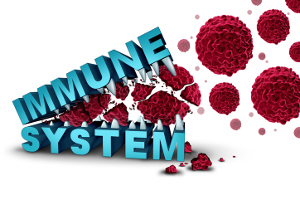 It is not the actual COVID-19 virus that can become lethal. It is the immune system’s overreaction with hyperinflammation and a storm of cytokines that destroys healthy tissue in the lungs, the cardiovascular system, and other places in the body, according to a new article that is published in The Lancet. The capacity of the immune system determines if an infection like COVID-19 is either harmless or life-threatening. For that reason, hygienic measures, masks, isolation, and delayed vaccines are not sufficient. We also need to bolster our immune system against COVID-19 and other pandemics that may occur in the future. Let’s look closer at vitamin C, vitamin D, selenium and zinc, all of which are essential for preventing a well-functioning immune system from going off its rails. What is also worth mentioning is that many people lack these nutrients, especially older people and other exposed groups.
It is not the actual COVID-19 virus that can become lethal. It is the immune system’s overreaction with hyperinflammation and a storm of cytokines that destroys healthy tissue in the lungs, the cardiovascular system, and other places in the body, according to a new article that is published in The Lancet. The capacity of the immune system determines if an infection like COVID-19 is either harmless or life-threatening. For that reason, hygienic measures, masks, isolation, and delayed vaccines are not sufficient. We also need to bolster our immune system against COVID-19 and other pandemics that may occur in the future. Let’s look closer at vitamin C, vitamin D, selenium and zinc, all of which are essential for preventing a well-functioning immune system from going off its rails. What is also worth mentioning is that many people lack these nutrients, especially older people and other exposed groups.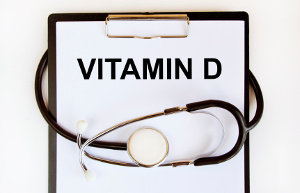 Danish scientists from Aalborg University have published a study of mice in which they demonstrate that vitamin D prevents cancer by affecting a particular kind of gut bacteria. A subsequent analysis of 1.5 million Danes shows a similar relation between low vitamin D levels in the blood and an increased risk of several cancer types. What is also worth mentioning is that the official vitamin D recommendations appear to be too low to be able optimize blood levels of the nutrient.
Danish scientists from Aalborg University have published a study of mice in which they demonstrate that vitamin D prevents cancer by affecting a particular kind of gut bacteria. A subsequent analysis of 1.5 million Danes shows a similar relation between low vitamin D levels in the blood and an increased risk of several cancer types. What is also worth mentioning is that the official vitamin D recommendations appear to be too low to be able optimize blood levels of the nutrient. According to a new study from Johns Hopkins University in the United States, vitamin D is able to protect overweight children against asthma caused by urban air pollution. Sunshine during the summer period is the main source of vitamin D, but due to our modern lifestyles, many people, including children, fail to get enough of the nutrient. This may have widespread consequences, as lack of vitamin D also increases the risk of overweight.
According to a new study from Johns Hopkins University in the United States, vitamin D is able to protect overweight children against asthma caused by urban air pollution. Sunshine during the summer period is the main source of vitamin D, but due to our modern lifestyles, many people, including children, fail to get enough of the nutrient. This may have widespread consequences, as lack of vitamin D also increases the risk of overweight. Vitamin C is essential for the immune defense for a number of reasons. According to a review of 12 recent studies, vitamin C administered in sufficiently high doses can prevent severe COVID-19 infections and save lives. The problem is that most people fail to follow the official dietary guidelines for fruit and vegetable consumption, which is why so many people lack vitamin C. Another thing is that health authorities in general are unaware of the health benefits of vitamin C in therapeutic doses, even after 80 years of international research.
Vitamin C is essential for the immune defense for a number of reasons. According to a review of 12 recent studies, vitamin C administered in sufficiently high doses can prevent severe COVID-19 infections and save lives. The problem is that most people fail to follow the official dietary guidelines for fruit and vegetable consumption, which is why so many people lack vitamin C. Another thing is that health authorities in general are unaware of the health benefits of vitamin C in therapeutic doses, even after 80 years of international research.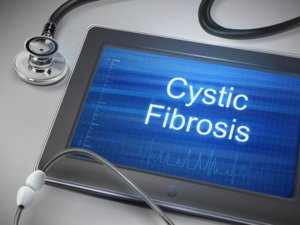
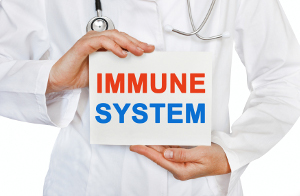 Lack of vitamin D is rather common and taking large quantities of the nutrient can not only protect against virus infections like COVID-19 but even counteract the life-threatening complications in those affected with the disease, according to a new, comprehensive, Irish report (TILDA) from Trinity College Dublin (University of Dublin in Ireland). The TILDA report supports many other published studies showing that the immune system is unable to function without vitamin D. The main focus in the battle against COVID-19 is hygiene, isolation, and delayed immunization with vaccines. However, it is also essential to bolster the immune defense, as this determines the difference between being able to ward off the infection, suffer mild symptoms only, or succumb. The scientists recommend that all adults take a high-dosed vitamin D supplement, especially older people, nursing home residents, chronically ill people, hospital patients, health professionals and other exposed groups. That way, we are better protected against future epidemics.
Lack of vitamin D is rather common and taking large quantities of the nutrient can not only protect against virus infections like COVID-19 but even counteract the life-threatening complications in those affected with the disease, according to a new, comprehensive, Irish report (TILDA) from Trinity College Dublin (University of Dublin in Ireland). The TILDA report supports many other published studies showing that the immune system is unable to function without vitamin D. The main focus in the battle against COVID-19 is hygiene, isolation, and delayed immunization with vaccines. However, it is also essential to bolster the immune defense, as this determines the difference between being able to ward off the infection, suffer mild symptoms only, or succumb. The scientists recommend that all adults take a high-dosed vitamin D supplement, especially older people, nursing home residents, chronically ill people, hospital patients, health professionals and other exposed groups. That way, we are better protected against future epidemics.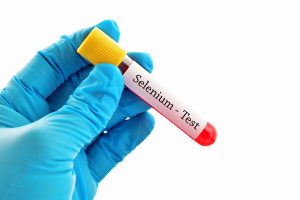 It is estimated that one billion people worldwide lack selenium. This has fatal consequences for public health because it increases the risk of virus infections, thyroid disorders, cardiovascular diseases, cancer, neurological disorders, and involuntary infertility. Adding to that problem is the fact that mercury, a known environmental toxin, throws a wrench into selenium’s different functions. In the following, we have compiled a long list of studies that look closer at the consequences of selenium deficiency and the advantage of optimizing the body’s selenium status with help from supplements.
It is estimated that one billion people worldwide lack selenium. This has fatal consequences for public health because it increases the risk of virus infections, thyroid disorders, cardiovascular diseases, cancer, neurological disorders, and involuntary infertility. Adding to that problem is the fact that mercury, a known environmental toxin, throws a wrench into selenium’s different functions. In the following, we have compiled a long list of studies that look closer at the consequences of selenium deficiency and the advantage of optimizing the body’s selenium status with help from supplements.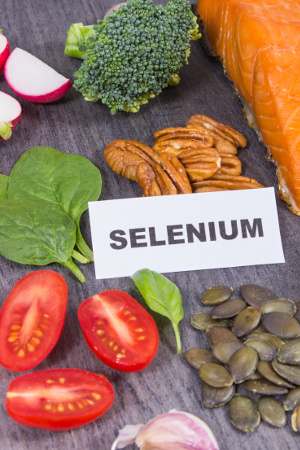

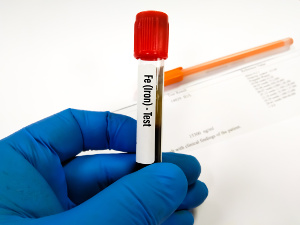 Lack of iron is the most widespread nutrient deficiency in the world and the most common cause of anemia. Iron deficiency causes fatigue, dizziness, paleness, impaired immunity, hair loss, and a host of other symptoms. It can cause stunted growth and learning difficulty in children. Some of the things that can cause iron deficiency are heavy menstrual bleeding, pregnancy, vegetarian/vegan diets, lack of vitamin C, antacids, inflammatory bowel diseases, and celiac disease. Excess iron, on the other hand, can also spell trouble by generating harmful free radicals that attack our cells. So, it is important not to get too little or too much iron – but just the right amount. In the following, you can read more about iron and its importance for our health.
Lack of iron is the most widespread nutrient deficiency in the world and the most common cause of anemia. Iron deficiency causes fatigue, dizziness, paleness, impaired immunity, hair loss, and a host of other symptoms. It can cause stunted growth and learning difficulty in children. Some of the things that can cause iron deficiency are heavy menstrual bleeding, pregnancy, vegetarian/vegan diets, lack of vitamin C, antacids, inflammatory bowel diseases, and celiac disease. Excess iron, on the other hand, can also spell trouble by generating harmful free radicals that attack our cells. So, it is important not to get too little or too much iron – but just the right amount. In the following, you can read more about iron and its importance for our health.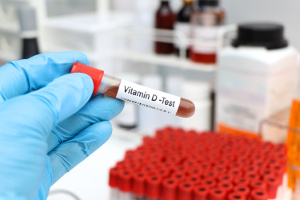 Melanoma is a type of malignant skin cancer that spreads rapidly. Being vitamin D-deficient doubles the risk of dying of the disease, according to a Spanish study that was presented at the European Academy of Dermatology and Venereology congress. It is commonly known that sunburns, which one should generally avoid, increase the risk of contracting skin cancer. But we must not forget that the summer sun is our main source of vitamin D and at our latitude, it necessary to take a vitamin D supplement in the wintertime. People who avoid the sun or have difficulty with synthesizing vitamin D in their skin should take a supplement all year round.
Melanoma is a type of malignant skin cancer that spreads rapidly. Being vitamin D-deficient doubles the risk of dying of the disease, according to a Spanish study that was presented at the European Academy of Dermatology and Venereology congress. It is commonly known that sunburns, which one should generally avoid, increase the risk of contracting skin cancer. But we must not forget that the summer sun is our main source of vitamin D and at our latitude, it necessary to take a vitamin D supplement in the wintertime. People who avoid the sun or have difficulty with synthesizing vitamin D in their skin should take a supplement all year round. COVID-19 represents a serious global threat against public health and the economy because we still lack a vaccine and effective therapies. When COVID-19 becomes life-threatening it is primarily because the immune defense overreacts with a cytokine storm and hyperinflammation that destroys healthy tissue in the lungs, the circulatory system, and other places. Older people and heart failure patients already suffer from chronic low-grade, uncontrolled inflammation, to which nutrient deficiencies contribute and make the patients increasingly vulnerable. This also applies to people with metabolic syndrome and diabetes, many of which are overweight. For that reason, scientists affiliated with universities and research centers in Norway, Sweden, and Russia have searched the scientific literature to find studies that focus on whether supplementation with vitamin D, selenium, and zinc can help prevent a COVID-19 infection from escalating and becoming life-threatening.
COVID-19 represents a serious global threat against public health and the economy because we still lack a vaccine and effective therapies. When COVID-19 becomes life-threatening it is primarily because the immune defense overreacts with a cytokine storm and hyperinflammation that destroys healthy tissue in the lungs, the circulatory system, and other places. Older people and heart failure patients already suffer from chronic low-grade, uncontrolled inflammation, to which nutrient deficiencies contribute and make the patients increasingly vulnerable. This also applies to people with metabolic syndrome and diabetes, many of which are overweight. For that reason, scientists affiliated with universities and research centers in Norway, Sweden, and Russia have searched the scientific literature to find studies that focus on whether supplementation with vitamin D, selenium, and zinc can help prevent a COVID-19 infection from escalating and becoming life-threatening. Around 25 percent of adults have had canker sores, also referred to as recurrent aphthous stomatitis (RAS). The condition is characterized by painful, superficial sores, and we don’t know all that much about what causes it or how to treat it. However, according to a meta-analysis that is published in Frontiers in Nutrition, a possible cause may be low blood levels of vitamin D, a nutrient with a key role in oral health and immune defense.
Around 25 percent of adults have had canker sores, also referred to as recurrent aphthous stomatitis (RAS). The condition is characterized by painful, superficial sores, and we don’t know all that much about what causes it or how to treat it. However, according to a meta-analysis that is published in Frontiers in Nutrition, a possible cause may be low blood levels of vitamin D, a nutrient with a key role in oral health and immune defense. Omega-3 and omega-6 fatty acids are vital for our brain function, nervous system, and immune defense but small children get too little of these two essential fatty acids. According to a Canadian study, this increases their risk of chronic inflammation and chronic diseases. The intake of omega-3 from oily fish and shellfish is particularly limited. For children who dislike seafood, a fish oil supplement is worth considering for the sake of their health and development.
Omega-3 and omega-6 fatty acids are vital for our brain function, nervous system, and immune defense but small children get too little of these two essential fatty acids. According to a Canadian study, this increases their risk of chronic inflammation and chronic diseases. The intake of omega-3 from oily fish and shellfish is particularly limited. For children who dislike seafood, a fish oil supplement is worth considering for the sake of their health and development.
 According to a new study based on a number of systematic reviews and meta-analyses, the widespread lack of vitamin D increases the risk of being infected with COVID-19. It also increases the risk of complications and death as the result of a derailed immune defense. At the same time, supplementation with vitamin D appears to reduce both disease severity and death among COVID-19 patients, provided blood levels of the nutrient are optimal.
According to a new study based on a number of systematic reviews and meta-analyses, the widespread lack of vitamin D increases the risk of being infected with COVID-19. It also increases the risk of complications and death as the result of a derailed immune defense. At the same time, supplementation with vitamin D appears to reduce both disease severity and death among COVID-19 patients, provided blood levels of the nutrient are optimal.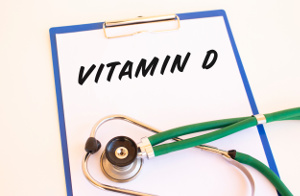
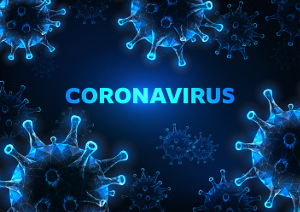 The coronavirus has spread from Wuhan in China to a number of continents, where it has caused massive fear and affected daily life and the global economy. Although most people that get the infection experience a mild course of events, the greatest fear is the potentially life-threatening complications in the respiratory system caused by oxidative stress, which have already taken thousands of human lives. Chinese scientists now call for early intravenous therapy with large doses of vitamin C to prevent oxidative stress and the life-threatening complications that follow in the wake of a derailed immune system. Many researchers also claim that higher intake of vitamin C from dietary sources or supplements help prevent by boosting and regulating the immune system in the upper respiratory tract. The same goes for vitamin D and selenium.
The coronavirus has spread from Wuhan in China to a number of continents, where it has caused massive fear and affected daily life and the global economy. Although most people that get the infection experience a mild course of events, the greatest fear is the potentially life-threatening complications in the respiratory system caused by oxidative stress, which have already taken thousands of human lives. Chinese scientists now call for early intravenous therapy with large doses of vitamin C to prevent oxidative stress and the life-threatening complications that follow in the wake of a derailed immune system. Many researchers also claim that higher intake of vitamin C from dietary sources or supplements help prevent by boosting and regulating the immune system in the upper respiratory tract. The same goes for vitamin D and selenium. When it comes to battling COVID-19, the main focus is on hygiene, face masks, lockdown, and delayed vaccines. For several months, scientists have urged people to take vitamin D supplements during the winter period as a way of preventing new waves of COVID-19. This is because vitamin D is of vital importance for a well-functioning immune system and it is known that deficiencies of this nutrient contribute to the spread of seasonal virus infections. We also see that groups of people that are most likely to be vitamin D-deficient – including seniors, nursing home residents, people with dark skin, overweight individuals, diabetics, and those with chronic diseases – are most vulnerable towards COVID-19. The British government is already handing out vitamin D supplements to exposed groups, according to an article in Daily Mail and a review article that is published in British Medical Journal. But why is vitamin D so important for the immune defense, why are some people more likely to become deficient, and how much vitamin D do we actually need? Also, will vaccines cut the mustard if COVID-19 mutates?
When it comes to battling COVID-19, the main focus is on hygiene, face masks, lockdown, and delayed vaccines. For several months, scientists have urged people to take vitamin D supplements during the winter period as a way of preventing new waves of COVID-19. This is because vitamin D is of vital importance for a well-functioning immune system and it is known that deficiencies of this nutrient contribute to the spread of seasonal virus infections. We also see that groups of people that are most likely to be vitamin D-deficient – including seniors, nursing home residents, people with dark skin, overweight individuals, diabetics, and those with chronic diseases – are most vulnerable towards COVID-19. The British government is already handing out vitamin D supplements to exposed groups, according to an article in Daily Mail and a review article that is published in British Medical Journal. But why is vitamin D so important for the immune defense, why are some people more likely to become deficient, and how much vitamin D do we actually need? Also, will vaccines cut the mustard if COVID-19 mutates?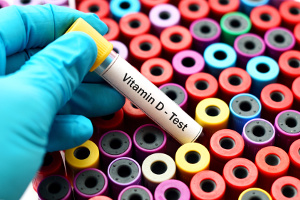 COVID-19 is highly unpredictable and be either totally harmless or life-threatening. Scientists from Oak Ridge National Laboratory in Tennessee recently made a comprehensive genetic analysis that reveals a new hypothesis – the bradykinin hypothesis – which shows why COVID-19 attacks the way it does, why symptoms vary, and why some groups of people are more vulnerable than others. The hypothesis also underpins the importance of getting enough vitamin D to prevent or possibly treat the disease. Vitamin D deficiency in the winter period is quite common and that may pave the road for new rounds of COVID-19 and an increased risk of complications.
COVID-19 is highly unpredictable and be either totally harmless or life-threatening. Scientists from Oak Ridge National Laboratory in Tennessee recently made a comprehensive genetic analysis that reveals a new hypothesis – the bradykinin hypothesis – which shows why COVID-19 attacks the way it does, why symptoms vary, and why some groups of people are more vulnerable than others. The hypothesis also underpins the importance of getting enough vitamin D to prevent or possibly treat the disease. Vitamin D deficiency in the winter period is quite common and that may pave the road for new rounds of COVID-19 and an increased risk of complications. It has already been documented that the widespread problems with vitamin D deficiency increase the risk of being infected with COVID-19 and developing life-threatening complications. In a new study, a team of Turkish scientists has demonstrated that swift treatment with vitamin D can shorten the length of hospital stays plus reduce mortality risk by 50 percent. What’s more, it even has a positive effect on comorbidity. Vitamin D deficiencies are especially common during the winter period and among seniors, people of color, overweight individuals, diabetics, and other vulnerable groups. This makes the study results very relevant, especially when you consider the fact that vaccines only have a limited effect.
It has already been documented that the widespread problems with vitamin D deficiency increase the risk of being infected with COVID-19 and developing life-threatening complications. In a new study, a team of Turkish scientists has demonstrated that swift treatment with vitamin D can shorten the length of hospital stays plus reduce mortality risk by 50 percent. What’s more, it even has a positive effect on comorbidity. Vitamin D deficiencies are especially common during the winter period and among seniors, people of color, overweight individuals, diabetics, and other vulnerable groups. This makes the study results very relevant, especially when you consider the fact that vaccines only have a limited effect. Since December of 2021, two large meta-analyses have revealed that having low levels of vitamin D in your blood increases the risk of COVID-19 infections, severe disease, admission to intensive care, and death. A third meta-analysis has shown that only 12 percent of COVID-19 patients who took supplements of vitamin D were admitted to intensive care, compared to 26 percent of the non-supplemented. Finally, a fourth meta-analysis shows that supplementation with vitamin D significantly lowers the risk of life-threatening COVID-19 infections. This is particularly relevant during the winter period and among people at risk of being vitamin D-deficient, including groups such as seniors, people with dark skin, overweight people, and the chronically ill. There is an alarming need for increased focus on vitamin D supplements to prevent and treat COVID-19 and other virus infections by optimizing blood levels of the nutrient. It is also important to get plenty of magnesium, a nutrient the body needs to activate vitamin D.
Since December of 2021, two large meta-analyses have revealed that having low levels of vitamin D in your blood increases the risk of COVID-19 infections, severe disease, admission to intensive care, and death. A third meta-analysis has shown that only 12 percent of COVID-19 patients who took supplements of vitamin D were admitted to intensive care, compared to 26 percent of the non-supplemented. Finally, a fourth meta-analysis shows that supplementation with vitamin D significantly lowers the risk of life-threatening COVID-19 infections. This is particularly relevant during the winter period and among people at risk of being vitamin D-deficient, including groups such as seniors, people with dark skin, overweight people, and the chronically ill. There is an alarming need for increased focus on vitamin D supplements to prevent and treat COVID-19 and other virus infections by optimizing blood levels of the nutrient. It is also important to get plenty of magnesium, a nutrient the body needs to activate vitamin D. Several studies have shown that optimizing your blood vitamin D levels with supplementation reduces the risk of contracting respiratory infections such as COVID-19. A new Hungarian study, published in Nutrients, has also found that very high doses of vitamin D given to hospitalized COVID-19 patients can reduce the risk of prolonged hospital stays and death due to severe complications.
Several studies have shown that optimizing your blood vitamin D levels with supplementation reduces the risk of contracting respiratory infections such as COVID-19. A new Hungarian study, published in Nutrients, has also found that very high doses of vitamin D given to hospitalized COVID-19 patients can reduce the risk of prolonged hospital stays and death due to severe complications. Magnesium is involved in hundreds of chemical reactions in the body, including the activation of vitamin D that we synthesize from sun exposure or take in supplement form. For that reason, magnesium is essential for the immune defense and its ability to fight COVID-19. Moreover, low magnesium levels in the body can foreshadow complications in connection with a COVID-19 infection, according to a study that is published in Nutrients. The scientists therefore say that it is relevant to measure hospitalized patients’ magnesium levels and correct any deficiencies. Many people, especially older individuals, get too little magnesium from their diets, and several types of medicine can impair the uptake and utilization of the nutrient.
Magnesium is involved in hundreds of chemical reactions in the body, including the activation of vitamin D that we synthesize from sun exposure or take in supplement form. For that reason, magnesium is essential for the immune defense and its ability to fight COVID-19. Moreover, low magnesium levels in the body can foreshadow complications in connection with a COVID-19 infection, according to a study that is published in Nutrients. The scientists therefore say that it is relevant to measure hospitalized patients’ magnesium levels and correct any deficiencies. Many people, especially older individuals, get too little magnesium from their diets, and several types of medicine can impair the uptake and utilization of the nutrient. Vitamin D is important for a swift and effective immune response. Once COVID-19 infections become complicated and life-threatening, it is not the virus that is the threat but the fact that the immune defense reacts too slowly and then causes hyperinflammation that damages healthy tissues in the respiratory system and circulatory system.
Vitamin D is important for a swift and effective immune response. Once COVID-19 infections become complicated and life-threatening, it is not the virus that is the threat but the fact that the immune defense reacts too slowly and then causes hyperinflammation that damages healthy tissues in the respiratory system and circulatory system.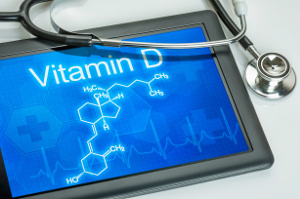 The summer sun is our most important source of vitamin D but people dark-skinned people living at northern latitudes have difficulty when it comes to producing enough of the nutrient. This makes them much more likely to become vitamin D-deficient and that can have serious health consequences, which may be life-threatening in worst case according to several studies.
The summer sun is our most important source of vitamin D but people dark-skinned people living at northern latitudes have difficulty when it comes to producing enough of the nutrient. This makes them much more likely to become vitamin D-deficient and that can have serious health consequences, which may be life-threatening in worst case according to several studies. Vitamin D is of vital importance to a well-functioning immune defense and it protects against virus infections. This has been confirmed by Denmark’s infection control agency, Statens Serum Institut, and researchers from Harvard University in Boston, USA. In a study, the Danish and American scientists found that having low levels of vitamin D in the blood is associated with a greater risk of severe disease outcome in patients with COVID-19.
Vitamin D is of vital importance to a well-functioning immune defense and it protects against virus infections. This has been confirmed by Denmark’s infection control agency, Statens Serum Institut, and researchers from Harvard University in Boston, USA. In a study, the Danish and American scientists found that having low levels of vitamin D in the blood is associated with a greater risk of severe disease outcome in patients with COVID-19.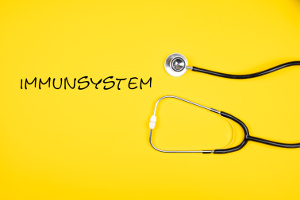 A panel of physicians and professors collaborating with the Swiss Society for Nutrition (SSN) recently reviewed the scientific evidence on the role of micronutrients in supporting a well-functioning immune defense for optimal health with particular focus on viral infections related to COVID-19. They conclude that there is widespread lack of vitamin C, vitamin D, selenium, zinc, and omega-3 fatty acids, all of which are crucial nutrients for the immune system. These deficiencies contribute to new waves of COVID-19 and can cause the infections to become life-threatening. The panel calls for immediate action with relevant focus on diet and supplements.
A panel of physicians and professors collaborating with the Swiss Society for Nutrition (SSN) recently reviewed the scientific evidence on the role of micronutrients in supporting a well-functioning immune defense for optimal health with particular focus on viral infections related to COVID-19. They conclude that there is widespread lack of vitamin C, vitamin D, selenium, zinc, and omega-3 fatty acids, all of which are crucial nutrients for the immune system. These deficiencies contribute to new waves of COVID-19 and can cause the infections to become life-threatening. The panel calls for immediate action with relevant focus on diet and supplements.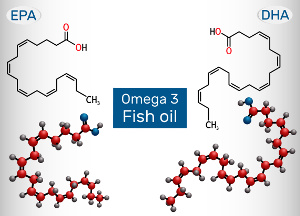 Because COVID-19 mutates from time to time, a vaccine can only provide temporary protection. Also, studies suggest that what makes COVID-19 dangerous is when the immune defense overreacts by launching so-called hyperinflammation that can damage the circulatory system and healthy tissues. The omega-3 fatty acids in fish oil turn out to have the potential to prevent COVID-19 infections from becoming life-threatening due to hyperinflammation. That way, fish oil can also help improve survival, according to a review article that is published in International Journal of General Medicine.
Because COVID-19 mutates from time to time, a vaccine can only provide temporary protection. Also, studies suggest that what makes COVID-19 dangerous is when the immune defense overreacts by launching so-called hyperinflammation that can damage the circulatory system and healthy tissues. The omega-3 fatty acids in fish oil turn out to have the potential to prevent COVID-19 infections from becoming life-threatening due to hyperinflammation. That way, fish oil can also help improve survival, according to a review article that is published in International Journal of General Medicine. HIV, the virus that causes AIDS, is potentially life-threatening because it attacks central cells in the immune defense. It has also been documented that HIV patients have an increased risk of lacking vitamin D. This can be because of the disease itself, the combination therapy, lack of sun exposure, or other factors. Vitamin D is important for the immune defense, the bones, our mood, and numerous other functions. According to a new article published in MedicalNews Today, it is important to measure HIV patients’ blood levels of vitamin D and possibly give them high-dosed supplements to optimize levels of the nutrient. Earlier studies point to a link between the course of an HIV infections and the body’s selenium status.
HIV, the virus that causes AIDS, is potentially life-threatening because it attacks central cells in the immune defense. It has also been documented that HIV patients have an increased risk of lacking vitamin D. This can be because of the disease itself, the combination therapy, lack of sun exposure, or other factors. Vitamin D is important for the immune defense, the bones, our mood, and numerous other functions. According to a new article published in MedicalNews Today, it is important to measure HIV patients’ blood levels of vitamin D and possibly give them high-dosed supplements to optimize levels of the nutrient. Earlier studies point to a link between the course of an HIV infections and the body’s selenium status. Ageing is linked to uncontrolled, low-grade inflammation, also known as inflammaging, according to articles published in the journals Nature Medicine and Ageing and Disease. Although chronic inflammation is not felt directly it may set the stage for cardiovascular disease, rheumatism, Alzheimer’s disease, and cancer. Chronic inflammation may also cause virus infections like influenza and COVID-19 to become life-threatening because the immune defense suddenly overreacts and attacks healthy tissue. It is therefore vital for ageing people to protect themselves against chronic inflammation, which means getting plenty of vitamin D, selenium, coenzyme Q10, zinc, omega-3, and melatonin. These are all things that many older people often lack.
Ageing is linked to uncontrolled, low-grade inflammation, also known as inflammaging, according to articles published in the journals Nature Medicine and Ageing and Disease. Although chronic inflammation is not felt directly it may set the stage for cardiovascular disease, rheumatism, Alzheimer’s disease, and cancer. Chronic inflammation may also cause virus infections like influenza and COVID-19 to become life-threatening because the immune defense suddenly overreacts and attacks healthy tissue. It is therefore vital for ageing people to protect themselves against chronic inflammation, which means getting plenty of vitamin D, selenium, coenzyme Q10, zinc, omega-3, and melatonin. These are all things that many older people often lack.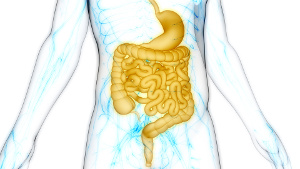
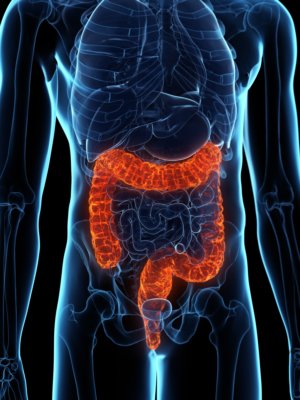 Irritable bowel is the most common intestinal disorder and affects around 15 percent of the population. The symptoms are typically unstable digestion, flatulence, constipation, diarrhea, stomach pain, and intestinal cramps. Several studies have shown that lack of vitamin D may cause the symptoms, and that taking a vitamin D supplement helps. This is because vitamin D is highly important for the intestinal immune defense and for controlling inflammation.
Irritable bowel is the most common intestinal disorder and affects around 15 percent of the population. The symptoms are typically unstable digestion, flatulence, constipation, diarrhea, stomach pain, and intestinal cramps. Several studies have shown that lack of vitamin D may cause the symptoms, and that taking a vitamin D supplement helps. This is because vitamin D is highly important for the intestinal immune defense and for controlling inflammation. Blood poisoning, also called sepsis, is a life-threatening condition that requires immediate medical attention. A combination of high-dosed, intravenously administered vitamin C may, however, shorten the hospital stay and lower the risk of dying, according to a study that is published in Journal of the American Medical Association. The study supports earlier research where a combination of intravenous vitamin C and vitamin B1 delivered even better results. These are simple and inexpensive therapies that can save lives by supporting the immune system and limiting damage to the cardiovascular system, the lungs, and other tissues.
Blood poisoning, also called sepsis, is a life-threatening condition that requires immediate medical attention. A combination of high-dosed, intravenously administered vitamin C may, however, shorten the hospital stay and lower the risk of dying, according to a study that is published in Journal of the American Medical Association. The study supports earlier research where a combination of intravenous vitamin C and vitamin B1 delivered even better results. These are simple and inexpensive therapies that can save lives by supporting the immune system and limiting damage to the cardiovascular system, the lungs, and other tissues.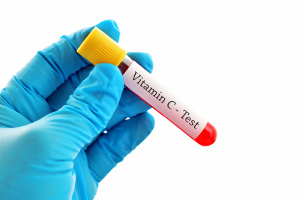 Chronic fatigue commonly follows in the wake of influenza, herpes, COVID-19, and other infections. The immune system does not function optimally, and the tiredness is caused by oxidative stress and inflammation. The condition is often accompanied by poor concentration, depression, and sleep disturbances. Oxidative stress is an imbalance between pro-inflammatory free radicals and protective antioxidants. Vitamin C happens to be one of the most potent antioxidants, and intravenous vitamin C therapy has been shown to reduce tiredness that follows after different types of virus infections, according to a review article in the scientific journal Nutrients. Here, the scientists also write about intravenous vitamin C therapy in connection with chronic fatigue syndrome following COVID-19 infections.
Chronic fatigue commonly follows in the wake of influenza, herpes, COVID-19, and other infections. The immune system does not function optimally, and the tiredness is caused by oxidative stress and inflammation. The condition is often accompanied by poor concentration, depression, and sleep disturbances. Oxidative stress is an imbalance between pro-inflammatory free radicals and protective antioxidants. Vitamin C happens to be one of the most potent antioxidants, and intravenous vitamin C therapy has been shown to reduce tiredness that follows after different types of virus infections, according to a review article in the scientific journal Nutrients. Here, the scientists also write about intravenous vitamin C therapy in connection with chronic fatigue syndrome following COVID-19 infections. Minerals are involved in countless functions of vital importance to the immune defense. That is why lack of one or several minerals can increase your risk of infections or perhaps trigger unwanted inflammation that can damage healthy tissue. In a new review article that is published in Nutrients, a group of scientists look at magnesium, selenium, zinc, iron, and copper and their role in the immune system. They also look at the fact that vegans, older people, chronically ill, pregnant women, and elite athletes often have nutrient deficiencies that call for supplementation. The agricultural soil in Europe and many other parts of the world is selenium-depleted, which makes it challenging to get enough selenium from our diets. But it is also important not to overdose on minerals. In this article, you can read more about how to optimize your nutrient intake for your immune health.
Minerals are involved in countless functions of vital importance to the immune defense. That is why lack of one or several minerals can increase your risk of infections or perhaps trigger unwanted inflammation that can damage healthy tissue. In a new review article that is published in Nutrients, a group of scientists look at magnesium, selenium, zinc, iron, and copper and their role in the immune system. They also look at the fact that vegans, older people, chronically ill, pregnant women, and elite athletes often have nutrient deficiencies that call for supplementation. The agricultural soil in Europe and many other parts of the world is selenium-depleted, which makes it challenging to get enough selenium from our diets. But it is also important not to overdose on minerals. In this article, you can read more about how to optimize your nutrient intake for your immune health. When it comes to COVID-19 and other seasonal virus infections most of the focus is concentrated on vitamin D deficiency. According to a Belgian study, however, lack of selenium and zinc additionally increases the risk of infections, complications, and death, especially among patients who already suffer from chronic diseases. The scientists conclude that supplementation with selenium and zinc may help improve treatments. Selenium and zinc deficiencies are rather common and that is a problem for public health. Even with a healthy diet, it is practically impossible for Europeans to get enough selenium because of the nutrient-depleted farmland. There are also many people with zinc deficiencies due to unhealthy diets, ageing, chronic diseases, and other contributing factors. We must be much more focused on getting enough selenium and zinc, not least for the sake of preventing virus infections and other problems.
When it comes to COVID-19 and other seasonal virus infections most of the focus is concentrated on vitamin D deficiency. According to a Belgian study, however, lack of selenium and zinc additionally increases the risk of infections, complications, and death, especially among patients who already suffer from chronic diseases. The scientists conclude that supplementation with selenium and zinc may help improve treatments. Selenium and zinc deficiencies are rather common and that is a problem for public health. Even with a healthy diet, it is practically impossible for Europeans to get enough selenium because of the nutrient-depleted farmland. There are also many people with zinc deficiencies due to unhealthy diets, ageing, chronic diseases, and other contributing factors. We must be much more focused on getting enough selenium and zinc, not least for the sake of preventing virus infections and other problems. Around one billion people worldwide are believed to lack selenium, mainly due to nutrient-depleted farmland. Selenium deficiency makes us more vulnerable to infections and increases the risk of a virus mutating and becoming more dangerous. This was shown in previous studies of RNA virus that can cause influenza, hepatitis, HIV, and Keshan disease. Coronavirus that causes the common cold and COVID-19 infections also belongs to the group of RNA virus and has a unique ability to mutate. Three new mutated virus types have been found in mink and stand in the way of a future vaccine. Therefore, we are forced to bolster our immune defense, which is designed to attack virus from different angles. Still, even if we eat a healthy diet it can be challenging to get enough selenium, and that is why an increasing number of international researchers now recommend selenium supplements to help fight coronavirus.
Around one billion people worldwide are believed to lack selenium, mainly due to nutrient-depleted farmland. Selenium deficiency makes us more vulnerable to infections and increases the risk of a virus mutating and becoming more dangerous. This was shown in previous studies of RNA virus that can cause influenza, hepatitis, HIV, and Keshan disease. Coronavirus that causes the common cold and COVID-19 infections also belongs to the group of RNA virus and has a unique ability to mutate. Three new mutated virus types have been found in mink and stand in the way of a future vaccine. Therefore, we are forced to bolster our immune defense, which is designed to attack virus from different angles. Still, even if we eat a healthy diet it can be challenging to get enough selenium, and that is why an increasing number of international researchers now recommend selenium supplements to help fight coronavirus. Selenium is of vital importance to a strong immune defense. Still, selenium deficiency is a common problem and it increases the risk of viral infections such as influenza and the coronavirus from China, which is feared to turn into a global pandemic. It is a problem that selenium deficiency in infected animals and humans causes the virus to mutate and become more aggressive. Because of selenium’s important role as a powerful antioxidant, being deficient of this micronutrient may leave the body vulnerable to oxidative stress, which can cause tissue damage and complicate the virus infection. It is therefore important to get enough selenium at all times, as it also increases our resistance towards other viral infections such as herpes, HIV, and hepatitis, according to an article published in Nutrients.
Selenium is of vital importance to a strong immune defense. Still, selenium deficiency is a common problem and it increases the risk of viral infections such as influenza and the coronavirus from China, which is feared to turn into a global pandemic. It is a problem that selenium deficiency in infected animals and humans causes the virus to mutate and become more aggressive. Because of selenium’s important role as a powerful antioxidant, being deficient of this micronutrient may leave the body vulnerable to oxidative stress, which can cause tissue damage and complicate the virus infection. It is therefore important to get enough selenium at all times, as it also increases our resistance towards other viral infections such as herpes, HIV, and hepatitis, according to an article published in Nutrients. Vitamin C has a vital role in our immune defense, and having low blood levels of the nutrient can affect the severity of infections such as COVID-19 and influenza, according to a review article published in Aging and Disease. The scientists behind the study also refer to other studies that have looked at large doses of intravenous vitamin C given to patients with sepsis and life-threatening COVID-19 infections. Vitamin C deficiency is a widespread problem for various reasons and that only adds to the problem.
Vitamin C has a vital role in our immune defense, and having low blood levels of the nutrient can affect the severity of infections such as COVID-19 and influenza, according to a review article published in Aging and Disease. The scientists behind the study also refer to other studies that have looked at large doses of intravenous vitamin C given to patients with sepsis and life-threatening COVID-19 infections. Vitamin C deficiency is a widespread problem for various reasons and that only adds to the problem.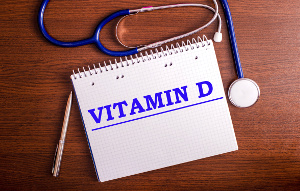 Vitamin D plays an overlooked role in the immune defense. Being deficient of the nutrient increases your risk of bacterial pneumonia by up to 60 percent, according to a large Danish study of 116,000 participants that was carried out by scientists from Herlev Hospital, Gentofte Hospital, and the University of Copenhagen.
Vitamin D plays an overlooked role in the immune defense. Being deficient of the nutrient increases your risk of bacterial pneumonia by up to 60 percent, according to a large Danish study of 116,000 participants that was carried out by scientists from Herlev Hospital, Gentofte Hospital, and the University of Copenhagen.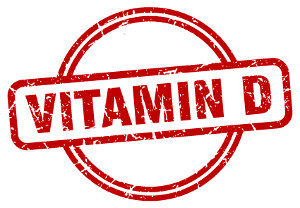 Hashimoto’s disease (Hashimoto’s thyroiditis) is an overlooked scourge that leads to hypothyroidism and is particularly widespread among women. Postpartum thyroiditis that also slows down your metabolism follows in the wake of pregnancy. Graves’ disease where the metabolism speeds up (hyperthyroidism) is less common. These three thyroid disorders belong to the group of autoimmune disorders where the immune defense attacks the body’s tissues, and it appears that lack of vitamin D increases the risk, as it controls the immune defense in a number of ways. According to a new review article that is published in Nutrients, taking larger quantities of vitamin D may have a positive impact on these thyroid disorders.
Hashimoto’s disease (Hashimoto’s thyroiditis) is an overlooked scourge that leads to hypothyroidism and is particularly widespread among women. Postpartum thyroiditis that also slows down your metabolism follows in the wake of pregnancy. Graves’ disease where the metabolism speeds up (hyperthyroidism) is less common. These three thyroid disorders belong to the group of autoimmune disorders where the immune defense attacks the body’s tissues, and it appears that lack of vitamin D increases the risk, as it controls the immune defense in a number of ways. According to a new review article that is published in Nutrients, taking larger quantities of vitamin D may have a positive impact on these thyroid disorders. It is hardly a coincidence that sore throats, colds, flus, and related complications such as sinus infections and pneumonia typically circulate during the winter period. They are primarily a result of having low vitamin D levels. During the winter, the sun sits too low in the sky to enable vitamin D synthesis in our skin, and we only have a limited amount of the nutrient stored in the liver. Good hand hygiene, warm soup, garlic, echinacea and other immune-boosting herbs alone will not deal with the problem, as they can never compensate for our lack of essential vitamin D, which the white blood cells of our immune system need in order to silently kill of virus. But how much vitamin D do we need, is it possible to get too much, and which mineral is necessary for activating the vitamin?
It is hardly a coincidence that sore throats, colds, flus, and related complications such as sinus infections and pneumonia typically circulate during the winter period. They are primarily a result of having low vitamin D levels. During the winter, the sun sits too low in the sky to enable vitamin D synthesis in our skin, and we only have a limited amount of the nutrient stored in the liver. Good hand hygiene, warm soup, garlic, echinacea and other immune-boosting herbs alone will not deal with the problem, as they can never compensate for our lack of essential vitamin D, which the white blood cells of our immune system need in order to silently kill of virus. But how much vitamin D do we need, is it possible to get too much, and which mineral is necessary for activating the vitamin?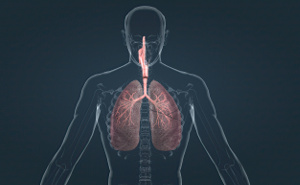 Vitamin C is of vital importance to our immune defense, and it serves as a powerful antioxidant to protect cells and tissues. Large quantities of vitamin C are able to improve lung function in patients with chronic obstructive pulmonary disease (COPD) and other chronic lung disorders. This was demonstrated in a large meta-analysis published in International Journal of Chronic Obstructive Pulmonary Disease.
Vitamin C is of vital importance to our immune defense, and it serves as a powerful antioxidant to protect cells and tissues. Large quantities of vitamin C are able to improve lung function in patients with chronic obstructive pulmonary disease (COPD) and other chronic lung disorders. This was demonstrated in a large meta-analysis published in International Journal of Chronic Obstructive Pulmonary Disease.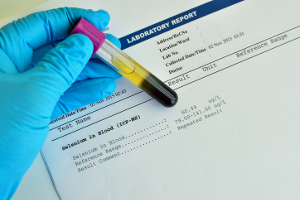 An international science team from the University of Surrey in England has found a link between low selenium levels in the soil and the risk od COVID-19 infections becoming lethal. Professor Margaret Rayman, who headed the study, has spent decades studying the global lack of selenium that is known to impair the ability of the immune system to tackle virus infections and new epidemics. The farmlands in large parts of the world, including Europe and China, are low in selenium, and it is vital to have more focus on this essential nutrient.
An international science team from the University of Surrey in England has found a link between low selenium levels in the soil and the risk od COVID-19 infections becoming lethal. Professor Margaret Rayman, who headed the study, has spent decades studying the global lack of selenium that is known to impair the ability of the immune system to tackle virus infections and new epidemics. The farmlands in large parts of the world, including Europe and China, are low in selenium, and it is vital to have more focus on this essential nutrient. Magnesium plays a vital role in the immune defense by regulating inflammation, which is a property that determines the body’s ability to tackle COVID-19 and other infections. People who lack magnesium have an increased risk of being infected with COVID-19 and also that the infection becomes life-threatening. This was shown in a large American population study that also revealed how widespread a problem magnesium deficiency is. The scientists therefore assume that an optimization of people’s magnesium status in the future can contribute to the protection against COVID-19 and similar respiratory infections. It is also important to get enough vitamin D because the two nutrients interact with each other.
Magnesium plays a vital role in the immune defense by regulating inflammation, which is a property that determines the body’s ability to tackle COVID-19 and other infections. People who lack magnesium have an increased risk of being infected with COVID-19 and also that the infection becomes life-threatening. This was shown in a large American population study that also revealed how widespread a problem magnesium deficiency is. The scientists therefore assume that an optimization of people’s magnesium status in the future can contribute to the protection against COVID-19 and similar respiratory infections. It is also important to get enough vitamin D because the two nutrients interact with each other.
 Levels of magnesium in the blood are determining for the immune system’s ability to attack pathogens and cancer cells, according to a new study from the University of Basel and the University Hospital Basel. The scientists have discovered that the T cells of the immune system need magnesium in order to carry out proper attacks. According to the scientists, these results are extremely important because magnesium has a potential role in new immunotherapies targeted at cancer patients. It is generally important to get plenty of magnesium because this nutrient is vital for the body’s calcium distribution and for supporting hundreds of enzyme processes.
Levels of magnesium in the blood are determining for the immune system’s ability to attack pathogens and cancer cells, according to a new study from the University of Basel and the University Hospital Basel. The scientists have discovered that the T cells of the immune system need magnesium in order to carry out proper attacks. According to the scientists, these results are extremely important because magnesium has a potential role in new immunotherapies targeted at cancer patients. It is generally important to get plenty of magnesium because this nutrient is vital for the body’s calcium distribution and for supporting hundreds of enzyme processes. Magnesium is required for a well-functioning immune defense and for controlling inflammatory processes that are vital to our health. Magnesium also appears to protect against COVID-19 and other infections and the development of cancer, according to a review article published in Journal of Health, Population, and Nutrition. Our modern, refined diet, stress, ageing, stimulant abuse, and different types of medicine also contribute to the widespread problems with magnesium deficiency.
Magnesium is required for a well-functioning immune defense and for controlling inflammatory processes that are vital to our health. Magnesium also appears to protect against COVID-19 and other infections and the development of cancer, according to a review article published in Journal of Health, Population, and Nutrition. Our modern, refined diet, stress, ageing, stimulant abuse, and different types of medicine also contribute to the widespread problems with magnesium deficiency.
 The winter period is the time of year where we typically lack vitamin D, and this contributes to new waves of COVID-19 and other virus infections. Moreover, many older people, dark-skinned individuals, nursing home residents, and diabetics often suffer from chronic vitamin D deficiency which makes them much more vulnerable. Since the springe of 2020, numerous studies have demonstrated that lack of vitamin D increases the risk of COVID-19 infections, acute respiratory distress syndrome (ARDS), intensive care admission, and death. This is described in a new meta-analysis that is published in Frontiers in Public Health. Danish threshold levels for vitamin D in the blood are also too low, apparently. The question is: How much vitamin D do we really need?
The winter period is the time of year where we typically lack vitamin D, and this contributes to new waves of COVID-19 and other virus infections. Moreover, many older people, dark-skinned individuals, nursing home residents, and diabetics often suffer from chronic vitamin D deficiency which makes them much more vulnerable. Since the springe of 2020, numerous studies have demonstrated that lack of vitamin D increases the risk of COVID-19 infections, acute respiratory distress syndrome (ARDS), intensive care admission, and death. This is described in a new meta-analysis that is published in Frontiers in Public Health. Danish threshold levels for vitamin D in the blood are also too low, apparently. The question is: How much vitamin D do we really need? During World War II, food supplies were scarce. At one point, English researchers wanted to find out how little vitamin C it would take to prevent the potentially lethal disease, scurvy. In order to do that, they carried out a drastic experiment that later served as basis for our current vitamin C recommendations. However, a recent analysis of this old study has revealed that the actual need for vitamin C is a lot greater than previously thought, suggesting that WHO raise the recommended daily intake level. The question is how much vitamin C do we really need and what good does the vitamin do?
During World War II, food supplies were scarce. At one point, English researchers wanted to find out how little vitamin C it would take to prevent the potentially lethal disease, scurvy. In order to do that, they carried out a drastic experiment that later served as basis for our current vitamin C recommendations. However, a recent analysis of this old study has revealed that the actual need for vitamin C is a lot greater than previously thought, suggesting that WHO raise the recommended daily intake level. The question is how much vitamin C do we really need and what good does the vitamin do? Although the course of disease for most people with COVID-19 is rather mild, the greatest concern is the life-threatening complications in the respiratory tract caused by oxidative stress and cytokine storm where the immune system attacks healthy tissue. Scientists are busy looking for new therapies such as intravenous vitamin C that is about to be tested in a new Chinese placebo-controlled study, according to an article that is published in Critical Care. Several researchers say that vitamin C from dietary sources and supplements has a preventive effect because it strengthens and regulates the immune defense in the respiratory tract. The same is the case with vitamin D and selenium.
Although the course of disease for most people with COVID-19 is rather mild, the greatest concern is the life-threatening complications in the respiratory tract caused by oxidative stress and cytokine storm where the immune system attacks healthy tissue. Scientists are busy looking for new therapies such as intravenous vitamin C that is about to be tested in a new Chinese placebo-controlled study, according to an article that is published in Critical Care. Several researchers say that vitamin C from dietary sources and supplements has a preventive effect because it strengthens and regulates the immune defense in the respiratory tract. The same is the case with vitamin D and selenium. Australian scientists are about to initiate the first clinical trial of intravenous zinc therapy for COVID-19 patients. Zinc is important for our immune capacity but it also helps counteract organ damage caused by an impaired oxygen supply to the cells and hyperinflammation. Zinc deficiencies are common, especially among older people, chronically ill, and other exposed groups.
Australian scientists are about to initiate the first clinical trial of intravenous zinc therapy for COVID-19 patients. Zinc is important for our immune capacity but it also helps counteract organ damage caused by an impaired oxygen supply to the cells and hyperinflammation. Zinc deficiencies are common, especially among older people, chronically ill, and other exposed groups. Older people can easily become deficient of vitamins and minerals, which can weaken their immune system and make them more prone to infections and prolonged periods with disease. On the other hand, older people who take a multivitamin and mineral supplement with zinc and large quantities of vitamin C experience fewer days with disease and have less severe symptoms, according to a placebo-controlled study from Oregon State University. But many multivitamin supplements do not contain enough vitamin D and it is very important for older people to get enough of this nutrient.
Older people can easily become deficient of vitamins and minerals, which can weaken their immune system and make them more prone to infections and prolonged periods with disease. On the other hand, older people who take a multivitamin and mineral supplement with zinc and large quantities of vitamin C experience fewer days with disease and have less severe symptoms, according to a placebo-controlled study from Oregon State University. But many multivitamin supplements do not contain enough vitamin D and it is very important for older people to get enough of this nutrient. Vitamin D is important for a well-functioning immune defense and a number of other functions. A team of scientists from Purdue University and National Institutes of Health in the United States has recently uncovered mechanisms that enable vitamin D to reduce hyperinflammation in severe COVID-19 cases. The scientists refer to a particularly active vitamin D metabolite that is formed in immune cells, in the lungs, and various other places. It is important to have adequate levels of vitamin D at all times, and it is equally vital for the body to be able to activate vitamin D, a process that requires the presence of magnesium.
Vitamin D is important for a well-functioning immune defense and a number of other functions. A team of scientists from Purdue University and National Institutes of Health in the United States has recently uncovered mechanisms that enable vitamin D to reduce hyperinflammation in severe COVID-19 cases. The scientists refer to a particularly active vitamin D metabolite that is formed in immune cells, in the lungs, and various other places. It is important to have adequate levels of vitamin D at all times, and it is equally vital for the body to be able to activate vitamin D, a process that requires the presence of magnesium.
 According to WHO, sepsis is the third-most common cause of death, following cardiovascular disease and death. Sepsis is a result of the immune defense overreacting to an infection in the bloodstream. According to a new Slovakian study published in Bratislava Medical Journal, if you start supplementing with Q10 early in the treatment phase, it may reduce the symptoms and improve the chances of survival. Read more about another nutrient that contributes to the prevention of sepsis.
According to WHO, sepsis is the third-most common cause of death, following cardiovascular disease and death. Sepsis is a result of the immune defense overreacting to an infection in the bloodstream. According to a new Slovakian study published in Bratislava Medical Journal, if you start supplementing with Q10 early in the treatment phase, it may reduce the symptoms and improve the chances of survival. Read more about another nutrient that contributes to the prevention of sepsis.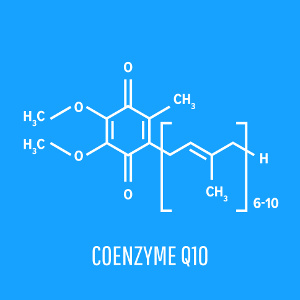 Q10 has a key role in the cellular energy turnover and also serves as an antioxidant that protects the body against oxidative stress. Disruptions in the energy-producing mitochondria in cells and oxidative stress may also be involved in different types of hormone disturbances that affect the thyroid gland, pancreas, sex glands, pituitary gland, and the adrenal glands. In a new review article that is published in Antioxidants, scientists look closer at Q10’s role with particular focus on hyperthyroidism, type 2 diabetes, and poor sperm quality, all of which can be corrected through supplementation.
Q10 has a key role in the cellular energy turnover and also serves as an antioxidant that protects the body against oxidative stress. Disruptions in the energy-producing mitochondria in cells and oxidative stress may also be involved in different types of hormone disturbances that affect the thyroid gland, pancreas, sex glands, pituitary gland, and the adrenal glands. In a new review article that is published in Antioxidants, scientists look closer at Q10’s role with particular focus on hyperthyroidism, type 2 diabetes, and poor sperm quality, all of which can be corrected through supplementation.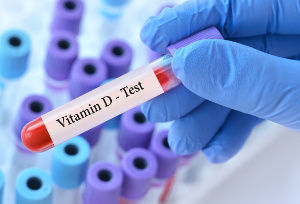
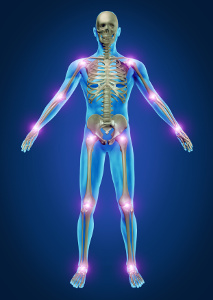 Rheumatism is the most widespread chronic disease in Denmark, and many people experience a worsening of the symptoms during the winter period. The majority of people take anti-inflammatory drugs for years, but this increases their risk of bleeding stomach ulcers and other side effects, not to mention premature death. The underlying cause is chronic inflammation and it is a problem that is not properly addressed. For decades, Nobel Prize-winners and other scientists have revealed what causes chronic inflammation and how the problem in many cases can be helped with various supplements that help cure the pain. In the following, we have summarized a lot of the research that has been conducted with vitamin D, fish oil, magnesium, selenium, zinc, and glucosamine, and we have looked at why the anti-inflammatory lifestyle has become such a health trend. It is essential to use supplements that contain the different ingredients in therapeutic doses and with a quality that allows the body to absorb and utilize the active compounds.
Rheumatism is the most widespread chronic disease in Denmark, and many people experience a worsening of the symptoms during the winter period. The majority of people take anti-inflammatory drugs for years, but this increases their risk of bleeding stomach ulcers and other side effects, not to mention premature death. The underlying cause is chronic inflammation and it is a problem that is not properly addressed. For decades, Nobel Prize-winners and other scientists have revealed what causes chronic inflammation and how the problem in many cases can be helped with various supplements that help cure the pain. In the following, we have summarized a lot of the research that has been conducted with vitamin D, fish oil, magnesium, selenium, zinc, and glucosamine, and we have looked at why the anti-inflammatory lifestyle has become such a health trend. It is essential to use supplements that contain the different ingredients in therapeutic doses and with a quality that allows the body to absorb and utilize the active compounds. Epidemiological studies have shown that relatively high doses of omega-3 fatty acids that are found in oily fish and fish oil supplements have a positive effect on neurodegenerative diseases such as sclerosis, but the underlying mechanisms are not known. A mouse study reveals that one particular omega-3 fatty acid is able to control the immune defense and regulate the inflammatory processes in the central nervous system.
Epidemiological studies have shown that relatively high doses of omega-3 fatty acids that are found in oily fish and fish oil supplements have a positive effect on neurodegenerative diseases such as sclerosis, but the underlying mechanisms are not known. A mouse study reveals that one particular omega-3 fatty acid is able to control the immune defense and regulate the inflammatory processes in the central nervous system. Selenium is a trace element with a number of essential functions. An estimated one billion people worldwide get too little dietary selenium. The problem is mainly a result of nutrient-depleted farmland. Moreover, blood levels of selenium drop drastically in connection with COVID-19 infections, serious illness, and pregnancy because the body has an increased need for the nutrient. Altogether, selenium deficiency increases the risk of complicated COVID-19 infections, autoimmune diseases such as rheumatoid arthritis, Hashimoto’s thyroiditis, preterm delivery, and miscarriage. Supplementation may help optimize blood levels of selenium, which can be relevant for preventing and treating a number of common diseases, according to an article that is published in International Journal of Medical Sciences.
Selenium is a trace element with a number of essential functions. An estimated one billion people worldwide get too little dietary selenium. The problem is mainly a result of nutrient-depleted farmland. Moreover, blood levels of selenium drop drastically in connection with COVID-19 infections, serious illness, and pregnancy because the body has an increased need for the nutrient. Altogether, selenium deficiency increases the risk of complicated COVID-19 infections, autoimmune diseases such as rheumatoid arthritis, Hashimoto’s thyroiditis, preterm delivery, and miscarriage. Supplementation may help optimize blood levels of selenium, which can be relevant for preventing and treating a number of common diseases, according to an article that is published in International Journal of Medical Sciences. Lack of selenium, an essential trace element, may cause thyroid disorders, cardiovascular disease, virus infections, AIDS, infertility, neurological disturbances, and cancer. An estimated one billion people worldwide are selenium-deficient. This is mainly a result of nutrient-depleted soil, which is a real problem in places like Europe. For decades, scientists have been warning about this problem, and a lot suggests that we need more than the officially recommended intake to protect ourselves effectively against disease, according to a review article published in StatPearls.
Lack of selenium, an essential trace element, may cause thyroid disorders, cardiovascular disease, virus infections, AIDS, infertility, neurological disturbances, and cancer. An estimated one billion people worldwide are selenium-deficient. This is mainly a result of nutrient-depleted soil, which is a real problem in places like Europe. For decades, scientists have been warning about this problem, and a lot suggests that we need more than the officially recommended intake to protect ourselves effectively against disease, according to a review article published in StatPearls.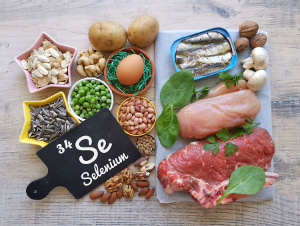 The rate of inflammatory bowel diseases like ulcerous colitis is growing, and diet plays a major role. Even if you eat a healthy diet, it can be a challenge to get enough selenium because of the selenium-depleted soil in our part of the world. Apparently, selenium supplementation can lower the disease activity and improve quality of life in patients with ulcerous colitis.
The rate of inflammatory bowel diseases like ulcerous colitis is growing, and diet plays a major role. Even if you eat a healthy diet, it can be a challenge to get enough selenium because of the selenium-depleted soil in our part of the world. Apparently, selenium supplementation can lower the disease activity and improve quality of life in patients with ulcerous colitis.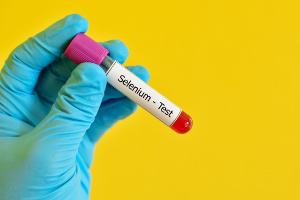 The corona crisis has shed new light on the importance of having a strong immune defense, one that protects us against virus infections in the long run. Selenium plays a vital role for a number of different reasons but, unfortunately, there is widespread deficiency which increases the risk of infections and related complications. In a new review article that is published in International Journal of Molecular Sciences, the authors look closer at selenium’s role in connection with different types of virus infections such as influenza, HIV, and hepatitis with particular focus on COVID-19. The purpose of their article is to inform about new nutritional strategies that may contribute to a strong and well-functioning immune defense – mainly when it comes to COVID-19 and virus types that tend to mutate all the time.
The corona crisis has shed new light on the importance of having a strong immune defense, one that protects us against virus infections in the long run. Selenium plays a vital role for a number of different reasons but, unfortunately, there is widespread deficiency which increases the risk of infections and related complications. In a new review article that is published in International Journal of Molecular Sciences, the authors look closer at selenium’s role in connection with different types of virus infections such as influenza, HIV, and hepatitis with particular focus on COVID-19. The purpose of their article is to inform about new nutritional strategies that may contribute to a strong and well-functioning immune defense – mainly when it comes to COVID-19 and virus types that tend to mutate all the time.
 Our nutritional status is of vital importance to our health and our ability to handle infections. Selenium has several functions in the immune system, including its role as an antioxidant and in counteracting unwanted inflammation. Selenium is also able to prevent virus from mutating and becoming more virulent or creating new waves of disease. A team of Chinese scientists have reviewed a number of studies of selenium and its key role in the defense against influenza, HIV, and other types of RNA virus. They have found, among other things, that the risk of contracting a COVID-19 infection is 10 times lower in areas where the soil is rich in selenium. Therefore, it is a huge problem that selenium deficiency due to selenium-depleted farmland is so widespread in Europe, China, Africa, and many other places.
Our nutritional status is of vital importance to our health and our ability to handle infections. Selenium has several functions in the immune system, including its role as an antioxidant and in counteracting unwanted inflammation. Selenium is also able to prevent virus from mutating and becoming more virulent or creating new waves of disease. A team of Chinese scientists have reviewed a number of studies of selenium and its key role in the defense against influenza, HIV, and other types of RNA virus. They have found, among other things, that the risk of contracting a COVID-19 infection is 10 times lower in areas where the soil is rich in selenium. Therefore, it is a huge problem that selenium deficiency due to selenium-depleted farmland is so widespread in Europe, China, Africa, and many other places.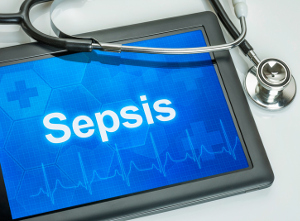
 Scientists have discovered traces of antibiotic-resistant super bacteria (NDM-1) in the soil of Svalbard. This archipelago is located in the arctic ocean between the North Pole and Norway, several thousand kilometers from India where the bacteria was originally discovered. This is described in a study that is published in the science journal, Environment International. Bacteria with the resistance gene NDM-1 have now spread to a number of other countries and many people have lost their lives to them. Humans are also challenged by other antibiotic-resistant bacteria, and the British health authorities consider this to be a larger threat to humans than climate change. But what causes these bacteria to develop resistance? And what vitamins and minerals are particularly important for bolstering the immune system? After all, our immune defense is our only way of protecting ourselves if antibiotics fail to work.
Scientists have discovered traces of antibiotic-resistant super bacteria (NDM-1) in the soil of Svalbard. This archipelago is located in the arctic ocean between the North Pole and Norway, several thousand kilometers from India where the bacteria was originally discovered. This is described in a study that is published in the science journal, Environment International. Bacteria with the resistance gene NDM-1 have now spread to a number of other countries and many people have lost their lives to them. Humans are also challenged by other antibiotic-resistant bacteria, and the British health authorities consider this to be a larger threat to humans than climate change. But what causes these bacteria to develop resistance? And what vitamins and minerals are particularly important for bolstering the immune system? After all, our immune defense is our only way of protecting ourselves if antibiotics fail to work. There is worldwide focus on finding better ways to prevent and treat COVID-19 because of the limited effect of vaccines. It is important to understand why the infections are harmless in most cases and why only a small number of people are affected by ARDS (acute respiratory distress syndrome), which is complicated and involves hyperinflammation. What represents the real problem here and what makes these infections life-threatening is a derailed and overactive immune defense. Multiple studies have already demonstrated that lack of vitamin D increases the risk of being infected with COVID-19 ending up in intensive care, and the studies also show that vitamin D supplements have a therapeutic potential. In a new review article that is published in Clinical and Molecular Allergy, researchers look closer at the synergy between vitamin D, magnesium, and zinc in relation to their ability to regulate the immune system and as potential therapeutic agents. It is also vital to have enough selenium, a nutrient that many people lack.
There is worldwide focus on finding better ways to prevent and treat COVID-19 because of the limited effect of vaccines. It is important to understand why the infections are harmless in most cases and why only a small number of people are affected by ARDS (acute respiratory distress syndrome), which is complicated and involves hyperinflammation. What represents the real problem here and what makes these infections life-threatening is a derailed and overactive immune defense. Multiple studies have already demonstrated that lack of vitamin D increases the risk of being infected with COVID-19 ending up in intensive care, and the studies also show that vitamin D supplements have a therapeutic potential. In a new review article that is published in Clinical and Molecular Allergy, researchers look closer at the synergy between vitamin D, magnesium, and zinc in relation to their ability to regulate the immune system and as potential therapeutic agents. It is also vital to have enough selenium, a nutrient that many people lack. Lack of vitamin C can cause bleeding from the gums, the eyes, and possibly even complicated internal bleeding, according to a study from the University of Washington. It is vital to get enough vitamin C from your diet because the nutrient is important for the collagen production, the immune defense, and numerous other functions. You may have an increased need for vitamin C if your gums bleed when you brush your teeth, if you bruise easily, or if you show other signs of lacking this essential nutrient.
Lack of vitamin C can cause bleeding from the gums, the eyes, and possibly even complicated internal bleeding, according to a study from the University of Washington. It is vital to get enough vitamin C from your diet because the nutrient is important for the collagen production, the immune defense, and numerous other functions. You may have an increased need for vitamin C if your gums bleed when you brush your teeth, if you bruise easily, or if you show other signs of lacking this essential nutrient. The number of Danes suffering from one or several chronic diseases is a lot higher than previously thought, according to a group of scientists behind a new study from Danish Center for Healthcare Improvement at Aalborg University. Diseases such as hypertension, elevated cholesterol, depression, bronchitis, asthma, type 2 diabetes, rheumatism, and osteoporosis are among the most widespread ailments. Although there may be a reason of underlying factors, diet and lack of essential nutrients often play a key role. This is something that we have written about over the years on this website, and we have tried to gather some facts from various articles. Simple diet changes and the use of relevant nutritional supplements may play a key role in the treatment of these chronic ailments that come at a huge price, both to the individual sufferer and to society.
The number of Danes suffering from one or several chronic diseases is a lot higher than previously thought, according to a group of scientists behind a new study from Danish Center for Healthcare Improvement at Aalborg University. Diseases such as hypertension, elevated cholesterol, depression, bronchitis, asthma, type 2 diabetes, rheumatism, and osteoporosis are among the most widespread ailments. Although there may be a reason of underlying factors, diet and lack of essential nutrients often play a key role. This is something that we have written about over the years on this website, and we have tried to gather some facts from various articles. Simple diet changes and the use of relevant nutritional supplements may play a key role in the treatment of these chronic ailments that come at a huge price, both to the individual sufferer and to society.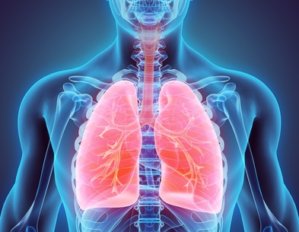
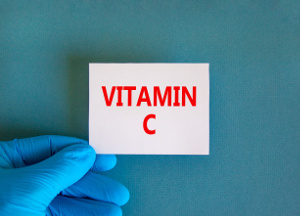
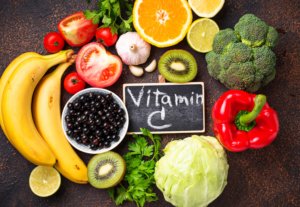 Vitamin C plays a key role in our energy turnover, immune defense, connective tissue, wound healing, antioxidant protection, cardiovascular health, brain, and a host of different enzyme processes. An English population study has shown that having low blood levels of vitamin C is associated with poor physical condition and that may spawn a number of different symptoms. The researchers behind the study also found that people from lower social classes, smokers, men, and older people in general are more likely to be deficient. Alcohol abuse, sugar abuse, stress, and poisoning may also increase the need for the nutrient, which means that many people may benefit from taking a supplement or improving their diet. The big question is how much vitamin C do we actually need for optimal health?
Vitamin C plays a key role in our energy turnover, immune defense, connective tissue, wound healing, antioxidant protection, cardiovascular health, brain, and a host of different enzyme processes. An English population study has shown that having low blood levels of vitamin C is associated with poor physical condition and that may spawn a number of different symptoms. The researchers behind the study also found that people from lower social classes, smokers, men, and older people in general are more likely to be deficient. Alcohol abuse, sugar abuse, stress, and poisoning may also increase the need for the nutrient, which means that many people may benefit from taking a supplement or improving their diet. The big question is how much vitamin C do we actually need for optimal health? Babies and small children are less likely to develop croup if their mothers have taken high-dosed vitamin D and fish oil during their pregnancy, according to a Danish study, where scientists have studied this relation for the very first time. Vitamin D and fish oil also benefit the child’s immune defense and counteract the inflammation in the respiratory system that triggers croup. The two supplements even have a positive impact on the child’s bone health and nervous system, and they also help prevent asthma.
Babies and small children are less likely to develop croup if their mothers have taken high-dosed vitamin D and fish oil during their pregnancy, according to a Danish study, where scientists have studied this relation for the very first time. Vitamin D and fish oil also benefit the child’s immune defense and counteract the inflammation in the respiratory system that triggers croup. The two supplements even have a positive impact on the child’s bone health and nervous system, and they also help prevent asthma.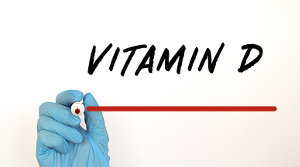 Vitamin D is essential for the immune defense but many of us are deficient of the nutrient during the dark winter period. The Danish Veterinary and Food Administration therefore recommends for everyone to take a vitamin D supplement in the winter months and that vulnerable population groups supplement all year round. Many people are unaware that being vitamin D-deficient contributes to new waves of COVID-19 and other types of viruses while increasing the risk of infections becoming complicated and life-threatening. This was demonstrated in multiple studies that have been published over the past 18 months. Leading scientists call for immediate action in terms of optimizing vitamin D levels in the population to help fight COVID-19 and other virus infections, simply because vaccines only have limited effect.
Vitamin D is essential for the immune defense but many of us are deficient of the nutrient during the dark winter period. The Danish Veterinary and Food Administration therefore recommends for everyone to take a vitamin D supplement in the winter months and that vulnerable population groups supplement all year round. Many people are unaware that being vitamin D-deficient contributes to new waves of COVID-19 and other types of viruses while increasing the risk of infections becoming complicated and life-threatening. This was demonstrated in multiple studies that have been published over the past 18 months. Leading scientists call for immediate action in terms of optimizing vitamin D levels in the population to help fight COVID-19 and other virus infections, simply because vaccines only have limited effect.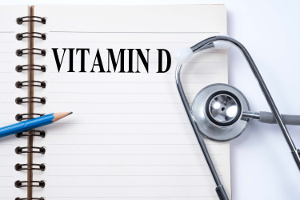 Vitamin D is essential for the immune defense. Because deficiencies of the nutrient are becoming increasingly common and vaccines only have limited effect, we can expect new waves of COVID-19 during the winter period. Vitamin D counteracts chronic inflammation which is seen in rheumatoid arthritis, diabetes, and other chronic diseases. Multiple studies have shown a link between low blood levels of vitamin D and the occurrence of these diseases. In a new meta-analysis that is published in Molecular and Cellular Biochemistry, scientists look closer at the scientific data for risk factors involved with vitamin D deficiencies and the advantages of taking vitamin D supplements in connection with COVID-19, rheumatoid arthritis, and other inflammatory diseases.
Vitamin D is essential for the immune defense. Because deficiencies of the nutrient are becoming increasingly common and vaccines only have limited effect, we can expect new waves of COVID-19 during the winter period. Vitamin D counteracts chronic inflammation which is seen in rheumatoid arthritis, diabetes, and other chronic diseases. Multiple studies have shown a link between low blood levels of vitamin D and the occurrence of these diseases. In a new meta-analysis that is published in Molecular and Cellular Biochemistry, scientists look closer at the scientific data for risk factors involved with vitamin D deficiencies and the advantages of taking vitamin D supplements in connection with COVID-19, rheumatoid arthritis, and other inflammatory diseases.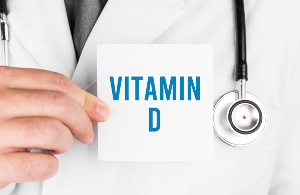 Patients admitted to the intensive care unit often lack vitamin D, resulting in more complications, prolonged ICU stay, and increased mortality compared with patients who have adequate vitamin D levels in their blood. This was demonstrated in an Iranian study from three hospitals. The study is published in BMJ Nutrition. Many older people and individuals with chronic diseases generally lack vitamin D, which is a problem.
Patients admitted to the intensive care unit often lack vitamin D, resulting in more complications, prolonged ICU stay, and increased mortality compared with patients who have adequate vitamin D levels in their blood. This was demonstrated in an Iranian study from three hospitals. The study is published in BMJ Nutrition. Many older people and individuals with chronic diseases generally lack vitamin D, which is a problem. Promising results have been seen with the use of vitamin D supplements in the treatment of inflammatory bowel diseases such as ulcerous colitis and Crohn’s disease. However, there is missing information about blood levels of vitamin D and the prognosis for these patients. A new study that is published in International Journal of Surgery reveals that blood levels of vitamin D are directly linked to the risk of surgical removal of morbid intestinal tissue.
Promising results have been seen with the use of vitamin D supplements in the treatment of inflammatory bowel diseases such as ulcerous colitis and Crohn’s disease. However, there is missing information about blood levels of vitamin D and the prognosis for these patients. A new study that is published in International Journal of Surgery reveals that blood levels of vitamin D are directly linked to the risk of surgical removal of morbid intestinal tissue. Ever since the COVID-19 pandemic started, scientists have focused on vitamin D. This nutrient strengthens and regulates the immune defense in a number of different ways. Numerous studies have shown that lack of vitamin D increases the risk of being infected with COVID-19 and running into complications. High-dosed vitamin D supplementation of COVID-19 patients can lower their risk of being admitted to the intensive care unit and dying of the disease, according to a new meta-analysis that is published in Nutrients.
Ever since the COVID-19 pandemic started, scientists have focused on vitamin D. This nutrient strengthens and regulates the immune defense in a number of different ways. Numerous studies have shown that lack of vitamin D increases the risk of being infected with COVID-19 and running into complications. High-dosed vitamin D supplementation of COVID-19 patients can lower their risk of being admitted to the intensive care unit and dying of the disease, according to a new meta-analysis that is published in Nutrients.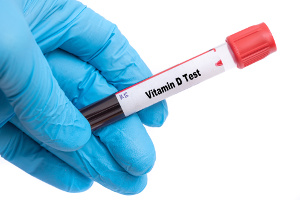 Many critically ill patients lack vitamin D to an extent that can be life-threatening. This also goes for patients hospitalized with COVID-19. A large meta-analysis concludes that supplementation with vitamin D can lower all-cause mortality and reduce the duration of patients’ stay in intensive care. In the meta-analysis, the researchers look at the mechanisms that enable vitamin D to regulate inflammation and oxidative stress, which can lead to organ failure in critically ill patients.
Many critically ill patients lack vitamin D to an extent that can be life-threatening. This also goes for patients hospitalized with COVID-19. A large meta-analysis concludes that supplementation with vitamin D can lower all-cause mortality and reduce the duration of patients’ stay in intensive care. In the meta-analysis, the researchers look at the mechanisms that enable vitamin D to regulate inflammation and oxidative stress, which can lead to organ failure in critically ill patients.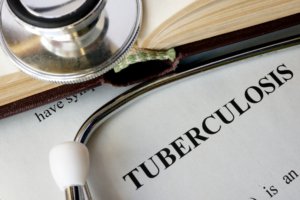 Tuberculosis (or TB) is one of most widespread diseases in the world. It claims millions of human lives every year, especially in underdeveloped countries. A team of scientists from Queen Mary University in London has discovered that vitamin D supplements can support therapies used in the treatment of multi-resistant TB, which can otherwise last quite a long time and comes at a considerable cost. Earlier studies have shown that vitamin D generally helps prevent the disease by supporting the immune system in different ways.
Tuberculosis (or TB) is one of most widespread diseases in the world. It claims millions of human lives every year, especially in underdeveloped countries. A team of scientists from Queen Mary University in London has discovered that vitamin D supplements can support therapies used in the treatment of multi-resistant TB, which can otherwise last quite a long time and comes at a considerable cost. Earlier studies have shown that vitamin D generally helps prevent the disease by supporting the immune system in different ways.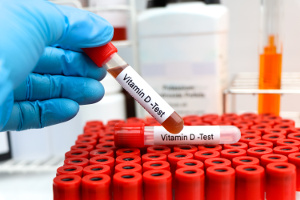 Many of us contract respiratory infections during the winter period. In many cases, the underlying cause is a deficiency of vitamin D, a key nutrient for immune health. Vitamin D also regulates the body’s inflammatory response, thereby preventing it from getting out of hand and becoming complicated or life-threatening. In a new review article, researchers looked at vitamin D’s role in preventing and fighting acute respiratory infections such as COVID-19 and influenza with particular focus on children and youngsters. The scientists point out that many people need to take higher doses of vitamin D to optimize levels of the nutrient in their blood.
Many of us contract respiratory infections during the winter period. In many cases, the underlying cause is a deficiency of vitamin D, a key nutrient for immune health. Vitamin D also regulates the body’s inflammatory response, thereby preventing it from getting out of hand and becoming complicated or life-threatening. In a new review article, researchers looked at vitamin D’s role in preventing and fighting acute respiratory infections such as COVID-19 and influenza with particular focus on children and youngsters. The scientists point out that many people need to take higher doses of vitamin D to optimize levels of the nutrient in their blood. Multiple studies have shown that vitamin D plays a key role in gut health by supporting the protective mucosa, the massive gut flora, the intestinal immune defense, and the regulation of inflammatory processes. According to a new review article published in Nutrients, lack of vitamin D, which is quite common, may therefore result in an increased risk of irritable bowel syndrome (IBS) and inflammatory bowel disease (IBD), which more and more people are affected by.
Multiple studies have shown that vitamin D plays a key role in gut health by supporting the protective mucosa, the massive gut flora, the intestinal immune defense, and the regulation of inflammatory processes. According to a new review article published in Nutrients, lack of vitamin D, which is quite common, may therefore result in an increased risk of irritable bowel syndrome (IBS) and inflammatory bowel disease (IBD), which more and more people are affected by.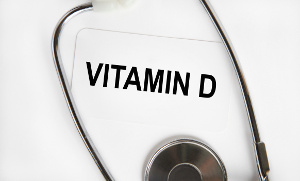
 Vitamin D2 occurs naturally in foods from the plant kingdom while vitamin D3 comes from animal sources. It is also vitamin D3 that we synthesize in our skin in response to sun exposure. Scientists from the Universities of Surrey and Brighton in Great Britain have now discovered that the two types of vitamin D have entirely different effects. They therefore sow doubts about vitamin D2’s role in human health, whereas vitamin D3 is known for its vital role in helping the immune system in its fight against infections such as COVID-19. Most cells in the body have vitamin D receptors, and the nutrient is also important for cancer prevention, the nervous system, our mood, and a number of other functions. Vitamin D3 from food, supplements, or sunshine must be activated in the body before it can be utilized.
Vitamin D2 occurs naturally in foods from the plant kingdom while vitamin D3 comes from animal sources. It is also vitamin D3 that we synthesize in our skin in response to sun exposure. Scientists from the Universities of Surrey and Brighton in Great Britain have now discovered that the two types of vitamin D have entirely different effects. They therefore sow doubts about vitamin D2’s role in human health, whereas vitamin D3 is known for its vital role in helping the immune system in its fight against infections such as COVID-19. Most cells in the body have vitamin D receptors, and the nutrient is also important for cancer prevention, the nervous system, our mood, and a number of other functions. Vitamin D3 from food, supplements, or sunshine must be activated in the body before it can be utilized.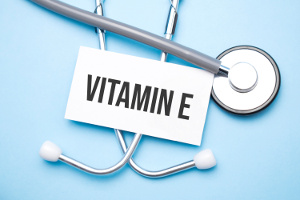 Immunotherapy has a special potential when used to treat cancer, which is because this particular type of therapy inhibits special molecules that block the body’s own defense mechanism against cancer cells. A team of scientists from Texas has discovered that vitamin E inhibits a particular molecule, thereby boosting the immunotherapy’s ability to stimulate important white blood cells. The scientists made this discovery by analyzing clinical data and in-depth laboratory studies. Vitamin E may play a future role in the prevention
Immunotherapy has a special potential when used to treat cancer, which is because this particular type of therapy inhibits special molecules that block the body’s own defense mechanism against cancer cells. A team of scientists from Texas has discovered that vitamin E inhibits a particular molecule, thereby boosting the immunotherapy’s ability to stimulate important white blood cells. The scientists made this discovery by analyzing clinical data and in-depth laboratory studies. Vitamin E may play a future role in the prevention According to an article that is published in StatPearls, vitamin E is a powerful antioxidant that protects against atherosclerosis, cardiovascular disease, and blood clots. Vitamin E is also important for fertility, cell functions, and immune defense. A low-fat diet may result in a vitamin E deficiency. You should also beware that diseases characterized by impaired lipid absorption may increase you need for vitamin E.
According to an article that is published in StatPearls, vitamin E is a powerful antioxidant that protects against atherosclerosis, cardiovascular disease, and blood clots. Vitamin E is also important for fertility, cell functions, and immune defense. A low-fat diet may result in a vitamin E deficiency. You should also beware that diseases characterized by impaired lipid absorption may increase you need for vitamin E.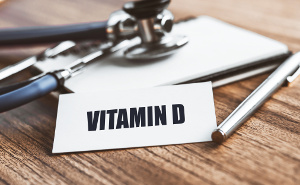

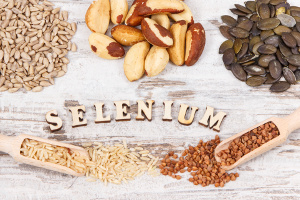 The trace element selenium has a vital yet overlooked role in ensuring a well-functioning immune system, and the widespread problems with selenium deficiency increase the risk of dying of COVID-19, according to a large German study that is published in the science journal Nutrients. The scientists therefore conclude that determining the patients’ blood selenium levels may provide vital diagnostic information. Also, the researchers conclude that it may be necessary to include selenium supplements in the treatment of COVID-19, especially with older people, diabetics, and those with chronic diseases that are at particular risk of life-threatening complications. The agricultural soil in Europe and other parts of the world contains relatively little selenium, which is why it is imperative to focus more on getting adequate amounts of this essential nutrient for the sake of preventing COVID-19 and other viral infections. It appears that the official recommendations – the so-called reference intake levels or RI – are not sufficient to meet the body’s actual requirements.
The trace element selenium has a vital yet overlooked role in ensuring a well-functioning immune system, and the widespread problems with selenium deficiency increase the risk of dying of COVID-19, according to a large German study that is published in the science journal Nutrients. The scientists therefore conclude that determining the patients’ blood selenium levels may provide vital diagnostic information. Also, the researchers conclude that it may be necessary to include selenium supplements in the treatment of COVID-19, especially with older people, diabetics, and those with chronic diseases that are at particular risk of life-threatening complications. The agricultural soil in Europe and other parts of the world contains relatively little selenium, which is why it is imperative to focus more on getting adequate amounts of this essential nutrient for the sake of preventing COVID-19 and other viral infections. It appears that the official recommendations – the so-called reference intake levels or RI – are not sufficient to meet the body’s actual requirements. Vitamin D is important for a strong immune defense, healthy bones and cardiovascular system, cancer prevention, and for the support of many other essential body functions. However, it is not enough to follow the official guidelines for intake levels or to rely on blood tests. According to Carsten Carlberg, a professor at the University of Eastern Finland (UEF), the explanation lies in the fact that we humans respond widely different to vitamin D, so the optimal vitamin D dose varies from one individual to another. Based on years of research, Carsten Carlberg therefore advises all adults living at northern latitudes to take 100 micrograms of vitamin D daily throughout the winter period, just to be safe. Earlier studies indicate that the official recommendations for vitamin D are based on a miscalculation that has had fatal consequences for public health.
Vitamin D is important for a strong immune defense, healthy bones and cardiovascular system, cancer prevention, and for the support of many other essential body functions. However, it is not enough to follow the official guidelines for intake levels or to rely on blood tests. According to Carsten Carlberg, a professor at the University of Eastern Finland (UEF), the explanation lies in the fact that we humans respond widely different to vitamin D, so the optimal vitamin D dose varies from one individual to another. Based on years of research, Carsten Carlberg therefore advises all adults living at northern latitudes to take 100 micrograms of vitamin D daily throughout the winter period, just to be safe. Earlier studies indicate that the official recommendations for vitamin D are based on a miscalculation that has had fatal consequences for public health.
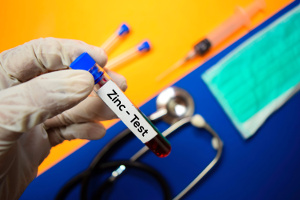 It is commonly known that zinc boosts the immune defense, although there has been some uncertainty about how. A team of scientists from Fred Hutchinson Cancer Research Center in the United States therefore decided to look closer at the subject and they found that zinc is important for T cell activity and for the thymus that produces the T cells. The scientists say that this new insight may be useful for the development of new therapies for patients with compromised immune systems. Apparently, zinc deficiencies are rather widespread and this increases the risk of infections where T cells play a key role in supporting the immune function.
It is commonly known that zinc boosts the immune defense, although there has been some uncertainty about how. A team of scientists from Fred Hutchinson Cancer Research Center in the United States therefore decided to look closer at the subject and they found that zinc is important for T cell activity and for the thymus that produces the T cells. The scientists say that this new insight may be useful for the development of new therapies for patients with compromised immune systems. Apparently, zinc deficiencies are rather widespread and this increases the risk of infections where T cells play a key role in supporting the immune function.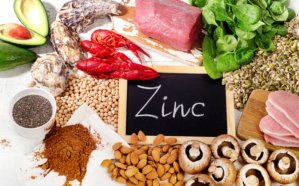 Our ability to absorb zinc is reduced with age, and many older people lack zinc, even though there is plenty of zinc in the diet they eat. The trace element is involved in over 1,000 enzyme processes and is also an important antioxidant that protects our cells. Even minor zinc deficiencies can speed up ageing processes and contribute to skin and hair problems, infections such as bladder infections, chronic inflammation, elevated blood pressure, cancer, and other diseases. People with unhealthy diets, vegetarians, vegans, and older people are at particularly vulnerable. Certain types of medicine that many seniors take can also increase the risk of a zinc deficiency.
Our ability to absorb zinc is reduced with age, and many older people lack zinc, even though there is plenty of zinc in the diet they eat. The trace element is involved in over 1,000 enzyme processes and is also an important antioxidant that protects our cells. Even minor zinc deficiencies can speed up ageing processes and contribute to skin and hair problems, infections such as bladder infections, chronic inflammation, elevated blood pressure, cancer, and other diseases. People with unhealthy diets, vegetarians, vegans, and older people are at particularly vulnerable. Certain types of medicine that many seniors take can also increase the risk of a zinc deficiency.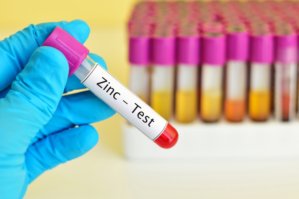 Lack of dietary zinc may disrupt the immune defense and increase your risk of inflammation, which is the common thread in most diseases such as eczema, rheumatism, diabetes, and cancer. Zinc’s underlying mechanisms used to be relatively unknown, but a new study published in the science journal Immunology shows that zinc regulates the white blood cells of the immune system plus the formation of various proteins that are important for controlling inflammatory processes. Unfortunately, zinc deficiencies are widespread for a number of reasons.
Lack of dietary zinc may disrupt the immune defense and increase your risk of inflammation, which is the common thread in most diseases such as eczema, rheumatism, diabetes, and cancer. Zinc’s underlying mechanisms used to be relatively unknown, but a new study published in the science journal Immunology shows that zinc regulates the white blood cells of the immune system plus the formation of various proteins that are important for controlling inflammatory processes. Unfortunately, zinc deficiencies are widespread for a number of reasons.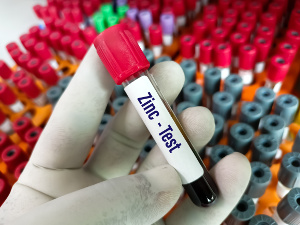 Zinc has many different functions in the immune defense and a zinc deficiency increases the risk of infections and diarrhea, which are global causes of disease and mortality. According to a study published in Physiological Reports, being zinc-deficient can also lead to influenza complications such as bacterial pneumonia that is potentially lethal. The authors assume that zinc plays a key role in the body’s defense against respiratory infections, including COVID-19. They write that factors such as unhealthy diets, ageing, alcoholism, intestinal diseases, and various types of medicine can increase the body’s need for zinc.
Zinc has many different functions in the immune defense and a zinc deficiency increases the risk of infections and diarrhea, which are global causes of disease and mortality. According to a study published in Physiological Reports, being zinc-deficient can also lead to influenza complications such as bacterial pneumonia that is potentially lethal. The authors assume that zinc plays a key role in the body’s defense against respiratory infections, including COVID-19. They write that factors such as unhealthy diets, ageing, alcoholism, intestinal diseases, and various types of medicine can increase the body’s need for zinc. "After about one week of taking the Q10 supplement I could feel a huge difference," says 23-year old Alan Piccini, who has been suffering from extreme fatigue and muscle aches ever since he was a child.
"After about one week of taking the Q10 supplement I could feel a huge difference," says 23-year old Alan Piccini, who has been suffering from extreme fatigue and muscle aches ever since he was a child. “Taking capsules with co-enzyme Q10 has freed me of the severe side effects of my cholesterol lowering medicine,” Mrs Franken explains.
“Taking capsules with co-enzyme Q10 has freed me of the severe side effects of my cholesterol lowering medicine,” Mrs Franken explains.